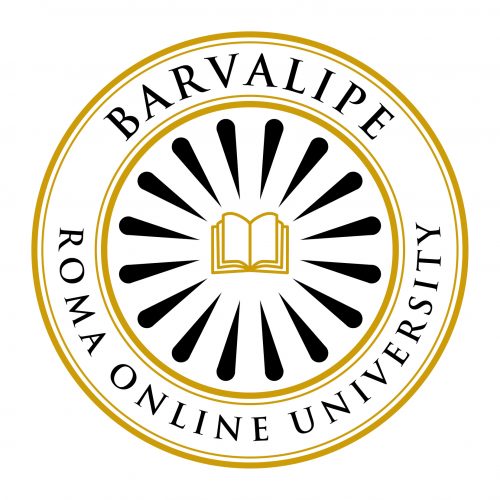5283
A critical turn in Romani Studies, requires a process of decolonization and an evaluative reframing of our current bibliographies. The Barvalipe Digital Library of Critical Romani Scholarship addresses, in part, a need for a rigorous, scholarly resource that collects reliable academic literature and research about the Roma and other related communities, developed from the critical perspectives of Romani scholars.
This selected collection is organised into several, contiguous, broad thematic sections that reflect particular avenues of current research, primarily (though not exclusively), led by Roma and other Romani scholars, namely: Romani Histories and Herstories, Romani Identity Politics, Romani Movements and Political Activism; Romani Feminist Thought and Activism; the Romani LGBTI Movement, Knowledge Production, Antigypsyism – Anti Romani racism and racialization; Romani Cultures and Narratives; Art History; Language and Linguistics; Romani Children.
This curated selection draws together some of the seminal pieces from peer–reviewed, academic publications by Romani researchers and scholars, adopting an orientation and positionality that reflects their identity as Roma, which begins to establish a foundational bedrock of a library of Critical Romani Studies. By collecting op-eds, articles, research findings, book chapters, reports and more, in one digital space, the Library makes Roma and Romani knowledge-production more widely accessible, to Romani and non-Romani audiences
alike.
The Library is meant to be a ‘living archive’ and not a fixed canon, nor is it a ‘museum artefact’ capturing a ‘snapshot’ of Romani knowledge production at one particular instance in the early 21st century. In this initial phase, the Curators of the Library have sought to gather together a collection of texts, from a variety of perspectives and intellectual or theoretical approaches that will serve as an initial point of reference, for an ever-expanding digital resource, much as a ‘patrin’ or ‘patteran’ was used by Romani people in the past indicating directions for late arrivals as to where the other waggons had moved on. To that end, the Curators welcome suggestions for academic additions to the Digital Library.
It is envisaged by the Curators that, over time, the collection will expand to provide a significant educational reference resource. This will, it is to be hoped, actively promote further rigorous and scholarly production from Romani academics and researchers, sometimes working in collaboration with their non–Roma partners and colleagues. The breadth of the collection, in content and subject matter, is likewise intended to extend into additional areas, such as Biography, Literature, Poetry and Drama, Graphic Novels and Animation, Religiosity, and other topics and fields of study. As such, the Digital Library has a potential to reach the widest possible communities, and represent them/us, through the lens of Romani knowledge production, in ways that are both new and intrinsic, inseparable from our own ‘voices’, rather than as the echoes distantly ‘captured’ by others.
The Barvalipe Digital Library of the Critical Romani Scholarship has been curated by: Dr. Maria Bogdan, Dr. Ioanida Costache, Dr. Dezso Mate, Dr. Adrian R. Marsh, Dr. Anna Mirga-Kruszelnicka.
In undertaking the topic of Romani history/herstory, we engage in a process of inquiry and building knowledge about the past. Knowledge, with etymological roots in the Ancient Greek word gnosis, carries with it a connotation of awareness. Historical inquiry as a way of making the past less distant is by default a process of building awareness. Recognizing Romani history—past events, ground-breaking actions, and experiences—allows us to cultivate Romani memory and a collective Romani consciousness informed by our heritage. Understanding our past empowers us to promote an elevated appreciation of today. This section presents a collection of Romani Histories and Herstories: of political systems, economic processes, international relations, and various forms of representations in relation to Romani life Bogdan Chiriac Zeynep C. Eren & Adrian Marsh Adrian-Nicolae Furtuna Adrian-Nicolae Furtună & Victor-Claudiu Turcitu Nicolae Gheorghe, Jean-Pierre Liégeois Nicolás Jiméneza González ⊗ Restricted article. Only available for ERIAC Members Ian Hancock Ian Hancock Ernő Kállai Vera Lackova Adrian Marsh, Elin Strand Adrian Marsh Adrian Marsh Margareta Matache, Jacqueline Bhabha Margareta Matache & Gabriela Ghindea & Matei Demetrescu Justyna Matkowska Andrzej Mirga Andrzej Mirga, Nicolae Gheorghe Anna Mirga-Kruszelnicka, Esteban C Acuna & Piotr Trojanski Ciprian Necula Sofia Taikon, G. Lundgren & A. Eriksson Marius Turda & Adrian-Nicolae Furtună Knesebeck, Julia von dem
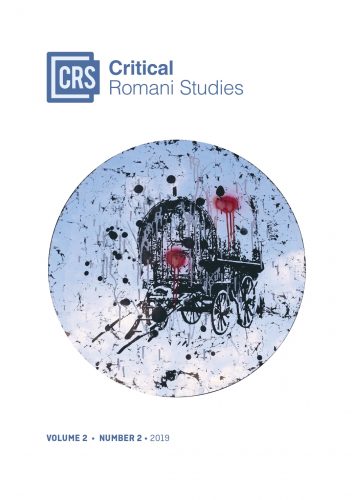
Mihail Kogălniceanu’s Historical Inquiry into the Question of Roma Slavery in Mid–Nineteenth-Century Romanian Principalities
Chiriac, Bogdan (2019) “Mihail Kogălniceanu’s Historical Inquiry into the Question of Roma Slavery in Mid-Nineteenth-Century Romanian Principalities”, Critical Romani Studies, Vol.2, No.2, pp. 4-22.
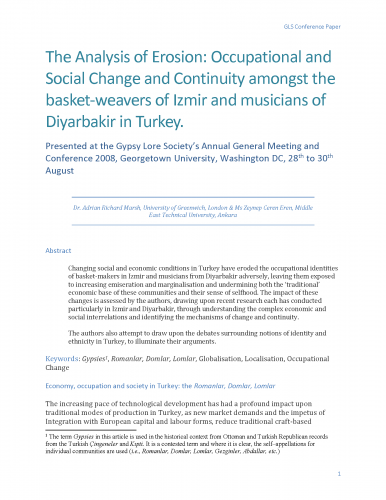
The Analysis of Erosion: Occupational and Social Change and Continuity amongst the basket-weavers of Izmir and musicians of Diyarbakır in Turkey
Eren, Zeynep C. & Marsh, A. R. (2008) “The Analysis of Erosion: Occupational and Social Change and Continuity amongst the basket-weavers of Izmir and musicians of Diyarbakır in Turkey”. Presented at the Gypsy Lore Society’s Annual General Meeting and Conference 2008, Georgetown University, Washington DC, 28th to 30th August, retrieved 1st December 2021.
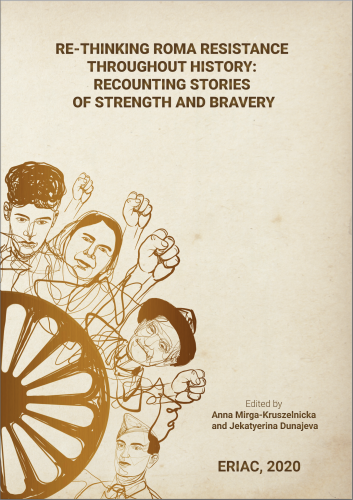
From Roma Slavery to World War II – Roma Resistance in Romania
Furtuna, Adrian-Nicolae (2020) “From Roma Slavery to World War II – Roma Resistance in Romania”, in Mirga-Kruszelnicka, Anna & Dunajeva, Jekatyerina [eds.], Re-thinking Roma Resistance throughout History: Recounting Stories of Strength and Bravery, Berlin: European Roma Institute for Arts and Culture (ERIAC), pp. 197-215.
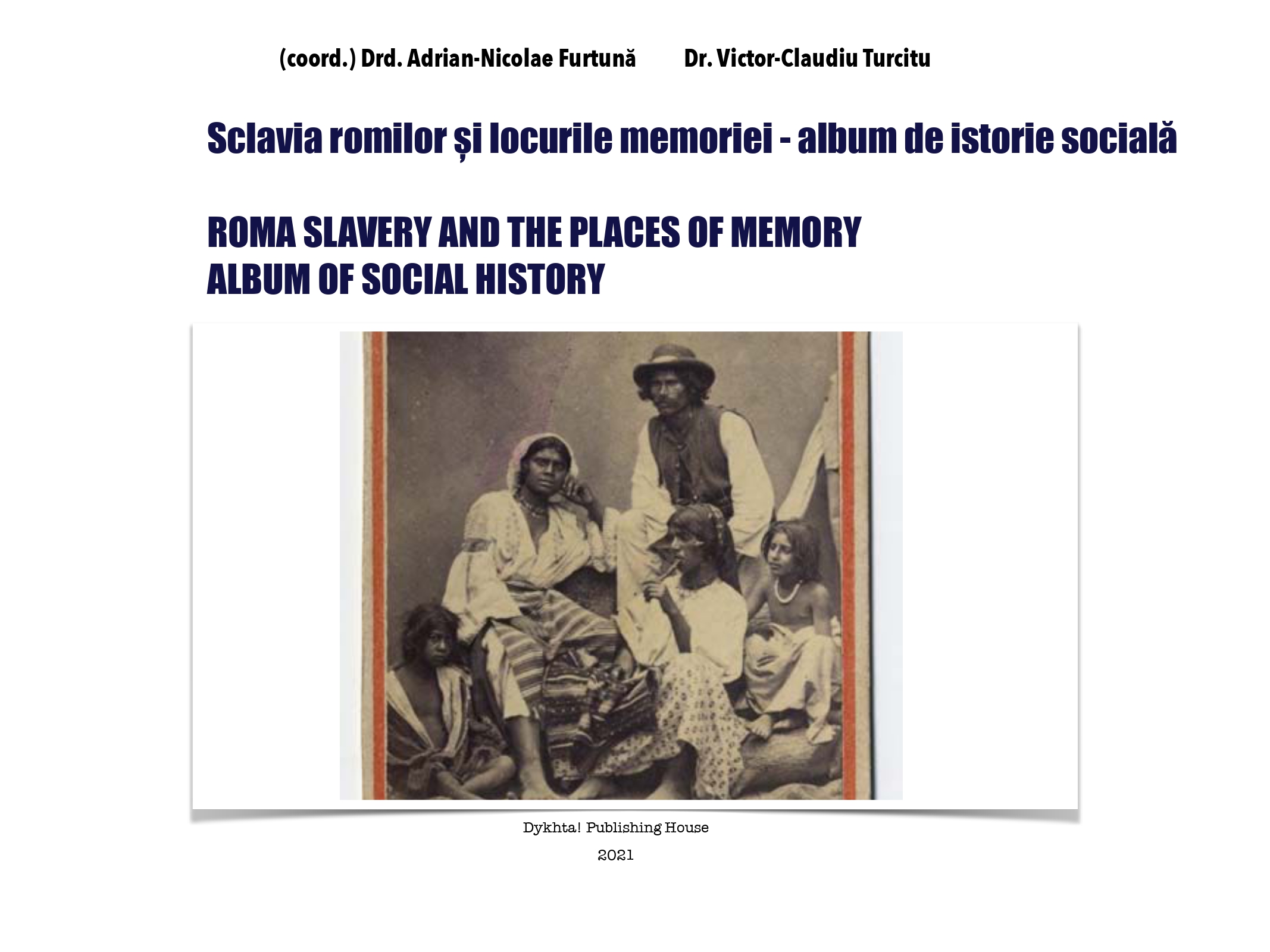
Roma Slavery and the Places of Memory Album of Social History
Furtună, Adrian-Nicolae & Turcitu, Victor-Claudiu (2021) Roma Slavery and the Places of Memory Album of Social History. Dykhta! Publishing House, pp. 107.
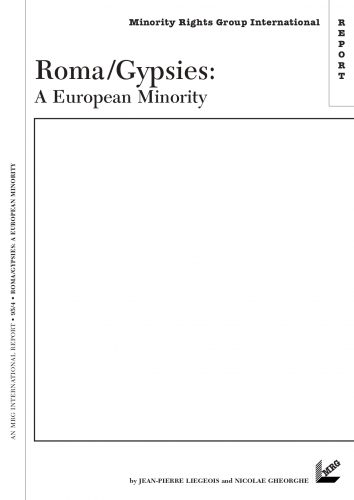
Roma/ Gypsies: A European Minority
Gheorghe, Nicolae & Liégeois, Jean-Pierre (1995) Roma/ Gypsies: A European Minority, An MRG International Report 95/4, Sinéad ni Shuinéar [translated from French], U.K.: Minority Rights Group, pp. 40.

Forms of resistance during the Great Round-up
(Spain, 1749-1763)
González, Nicolás Jiménez (2020), “Forms of resistance during the Great Round-up (Spain, 1749-1763)”, in Mirga-Kruszelnicka, Anna & Dunajeva, Jekatyerina [eds.], Re-thinking Roma Resistance throughout History: Recounting Stories of Strength and Bravery, Berlin: European Roma Institute for Arts and Culture (ERIAC), pp. 219-231.
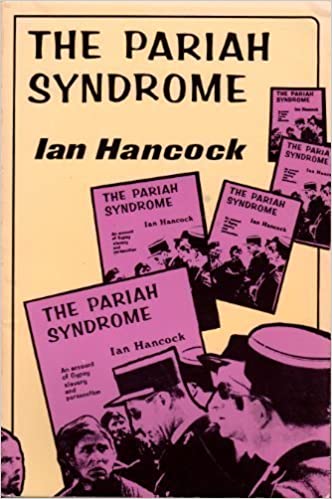
The Pariah Syndrome: An Account of Gypsy Slavery and Persecution
Hancock, Ian (1987) Pariah Syndrome: An Account of Gypsy Slavery and Persecution. Ann Arbor, MI: Karoma Publishers, pp. 180.
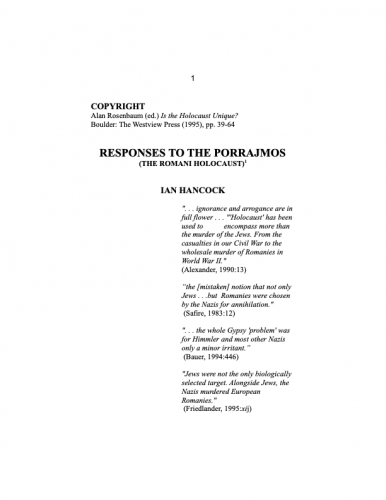
Responses to the Porrajmos: The Romani Holocaust
Hancock, Ian (2001) Responses to the Porrajmos: The Romani Holocaust, Rosenbaum, A. S. (ed.) Is the Holocaust Unique? Perspectives on Comparative Genocide. Boulder CO: Westview Press.
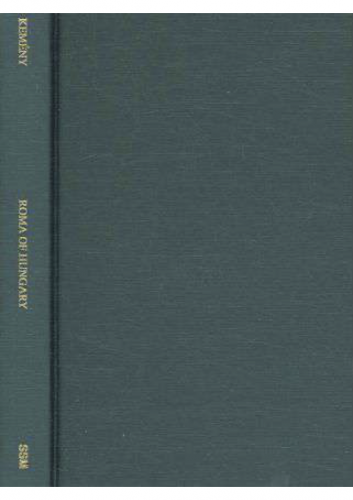
Legislation and Government Programs Relating to the Roma Population in Hungary since the Political Changes of 1989–90
Kállai, Ernő (2005) “Legislation and Government Programs Relating to the Roma Population in Hungary since the Political Changes of 1989–90.” Kemény, István [eds.], Roma of Hungary. New York: Columbia University Press, 2005. pp. 288–334.

‘How I became a partisan’. Filmmaking as a Resistance Strategy
against Oblivion”Lackova, Vera (2020) “How I became a partisan’. Filmmaking as a Resistance Strategy against Oblivion”, in Mirga-Kruszelnicka, Anna & Dunajeva, Jekatyerina [eds.], Re-thinking Roma Resistance throughout History: Recounting Stories of Strength and Bravery, Berlin: European Roma Institute for Arts and Culture (ERIAC), pp. 169-187.

“…the strumming of their silken bows” the Firdawsî Legend of Bâhram Gûr & Narratives of Origin in Romani Histories”
Marsh, Adrian – Strand, Elin (2006) “Gypsies and the Problem of Identities: Contextual, Constructed and Contested”, Istanbul: Swedish Research Institute in Istanbul, pp. 39-55.
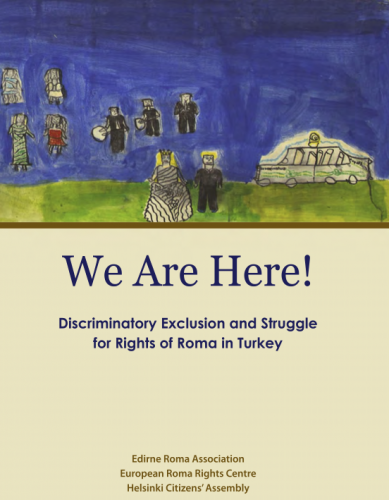
A Brief History of Gypsies in Turkey
Marsh, Adrian (2008) “A Brief History of Gypsies in Turkey”, in Danova–Russinova, S. et.al. [eds.], We Are Here! Discriminatory Exclusion and Struggle for Rights of Roma in Turkey, Edirne, Budapest, Istanbul: Edirne Romani Foundation, European Roma Rights Centre, Helsinki Citizens’ Assembly, pp. 5–20.

‘No Gypsies Served!’ Romany–Travellers in Wartime Britain
Marsh, Adrian. (2012) “No Gypsies Served!’ Romany–Travellers in Wartime Britain”, in Taikon, Sofia, Lundgren, G., Eriksson, A. [eds.], Sofia Z–4515, Eliot, J. [trans.], London: Mantra Lingua Press, pp. 42-44.
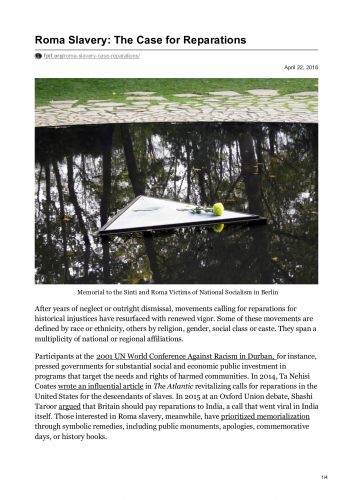
Roma Slavery: The Case for Reparations, Foreign Policy in Focus.
Matache, Margareta – Bhabha, – Jacqueline (2016) “Roma Slavery: The Case for Reparations”, Foreign Policy in Focus.
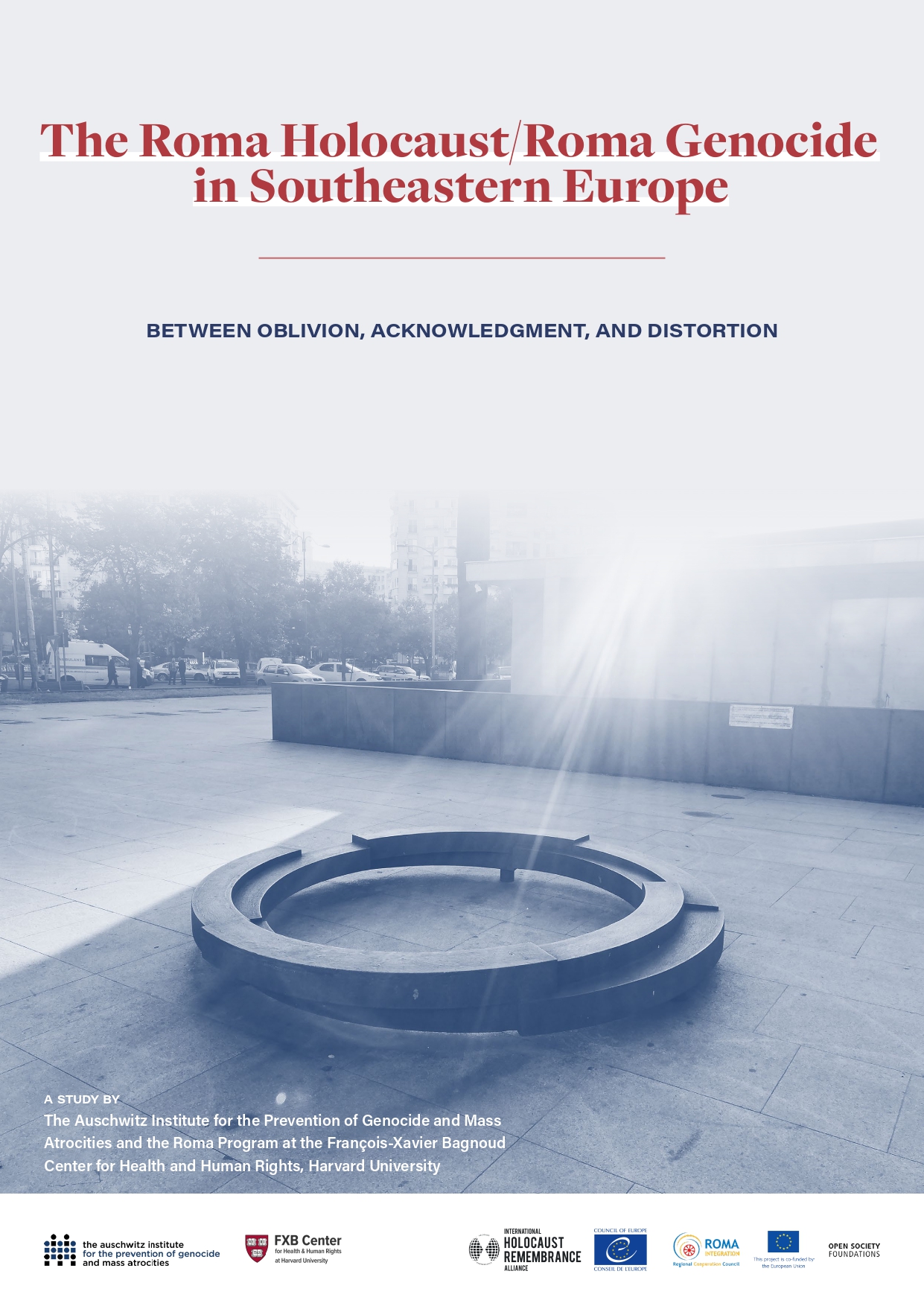
The Roma Holocaust/Roma Genocide in Southeastern Europe – Between Oblivion, Acknowledgment, and Distortion
Matache, Margareta & Ghindea, Gabriela & Demetrescu, Matei (2022) The Roma Holocaust/Roma Genocide in Southeastern Europe – Between Oblivion, Acknowledgment, and Distortion. The Auschwitz Institute for the Prevention of Genocide and Mass Atrocities and the Roma Program at the François-Xavier Bagnoud Center for Health and Human Rights, Harvard University, pp. 147.

Roma Resistance in Occupied Poland
Matkowska, Justyna (2020) “Roma Resistance in Occupied Poland”, in Mirga-Kruszelnicka, Anna & Dunajeva, Jekatyerina [eds.], Re-thinking Roma Resistance throughout History: Recounting Stories of Strength and Bravery, Berlin: European Roma Institute for Arts and Culture (ERIAC), pp. 145-169.
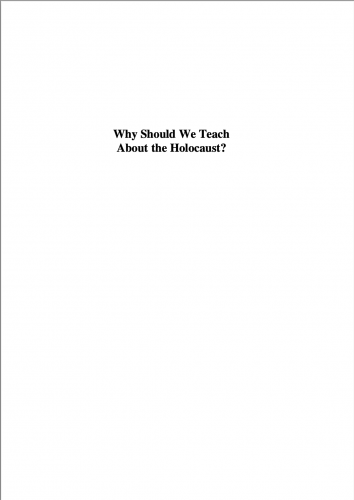
For a Worthy Place Among the Victims. The Holocaust and the Extermination of the Roma During World War II
Mirga, Andrzej (2005) “For a Worthy Place Among the Victims. The Holocaust and the Extermination of Roma During World War II”, in Ambrosewicz–Jacobs, J., & Hońdo, L. [eds.], Why Should We Teach About the Holocaust? 2nd edition, Institute of European Studies, the
Jagiellonian University, Cracow, pp. 93–100.
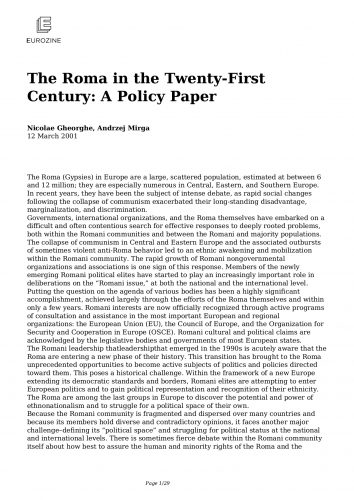
The Roma in the Twenty-First Century: A Policy Paper
Mirga, Andrzej & Gheorghe, Nicolae (2001) “The Roma in the Twenty-First Century: A Policy Paper”, Eurozine, 12th March, retrieved: 24th November 2021, pp 1-21.
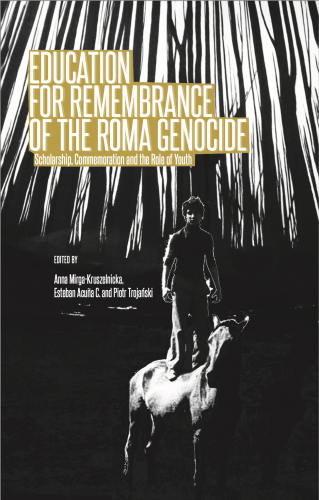
Introduction: Education for remembrance of the Roma Genocide: Scholarship, Commemoration and the Role of the Youth
Mirga-Kruszelnicka, Anna, Acuna C., Esteban, & Trojanski, Piotr (2015) “Introduction”, in “Education for remembrance of the Roma Genocide: Scholarship, Commemoration and the Role of the Youth, Kraków: Libron, pp. 11-24.
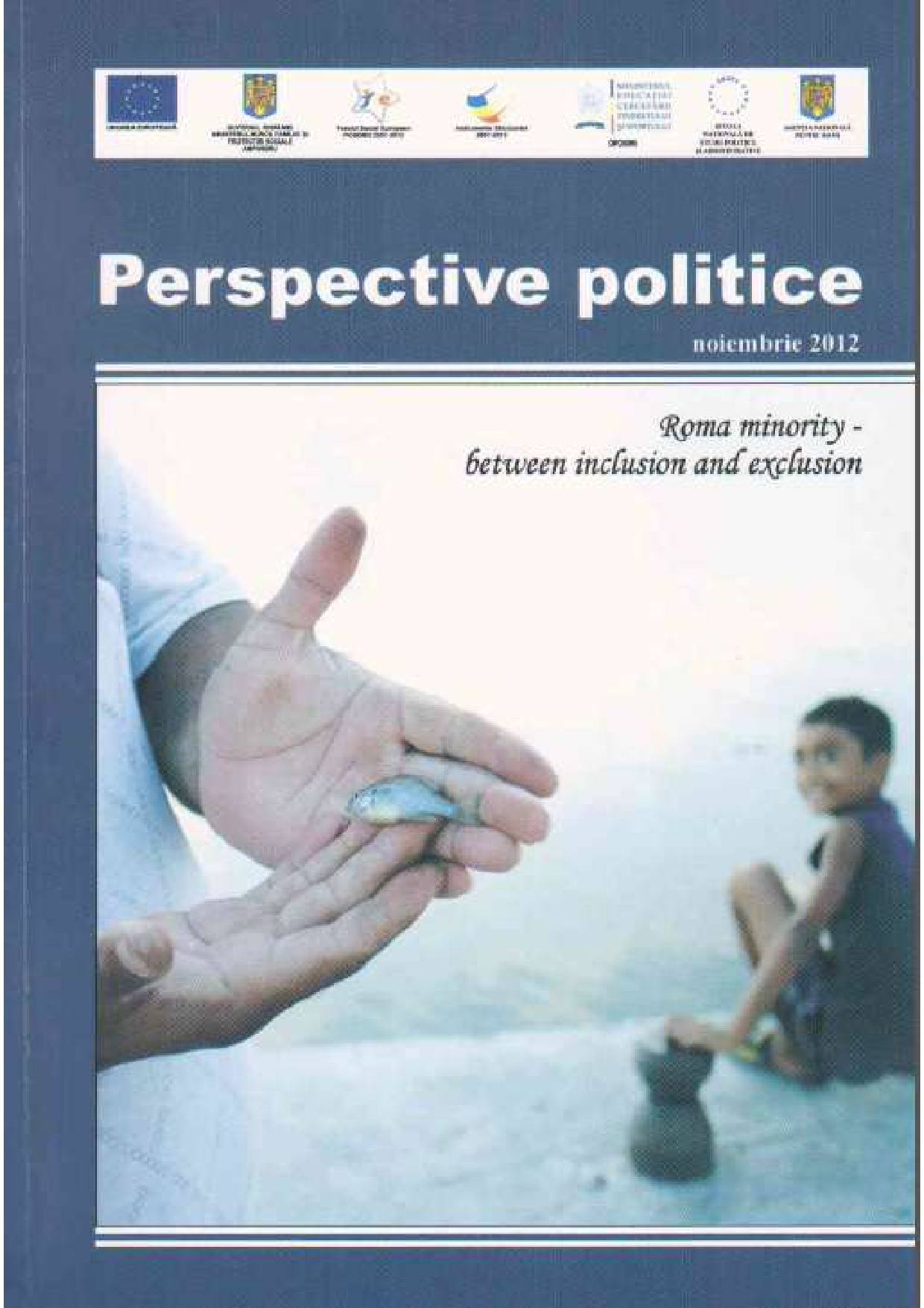
The cost of Roma slavery, Perspective Politice
Necula, Ciprian (2012) “The cost of Roma slavery”, Perspective Politice, Vol. 5 No. 2, pp. 33-46.
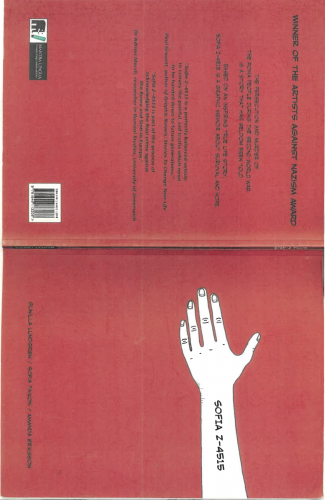
Sofia Z–4515
Taikon, Sofia, Lundgren, G. & Eriksson, A. (2012) “Sofia Z–4515”, Eliot, J. [trans.], London: Mantra Lingua, in Romanës/Swedish, Taikon, Žofi et.al. (2006), Žofi Z–4515, Stockholm: Bokförlaget Tranan, Podium Press, pp. 35.
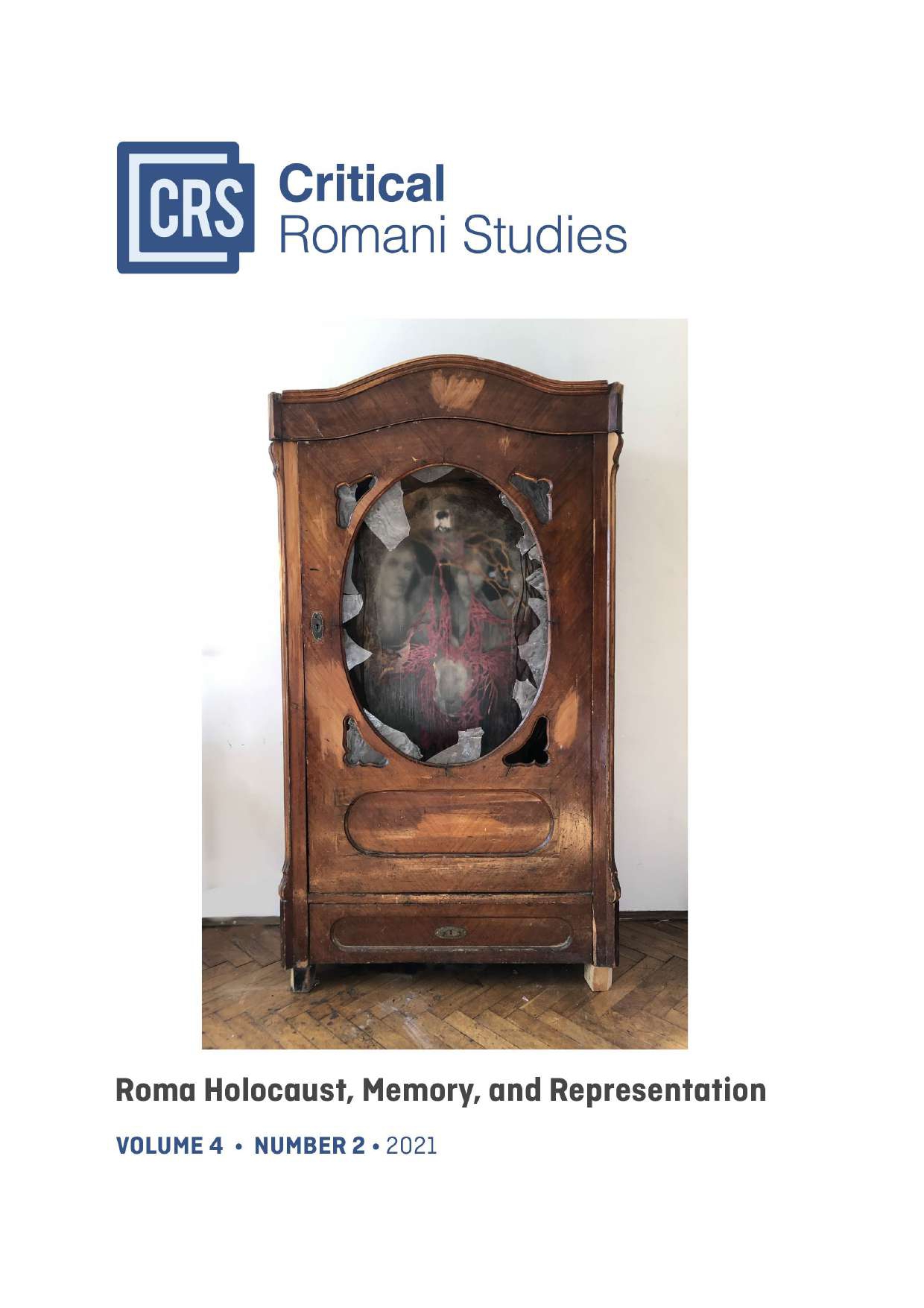
The Roma and the Question of Ethnic Origin in Romania during the Holocaust
Turda, Marius & Furtună, Adrian-Nicolae (2022) “The Roma and the Question of Ethnic Origin in Romania during the Holocaust”, Critical Romani Studies, Vol. 4, No.2, pp. 8-32.
I/1. NON-ROMANI CRITICAL SCHOLARSHIP ON ROMANI HISTORIES AND HER-STORIES
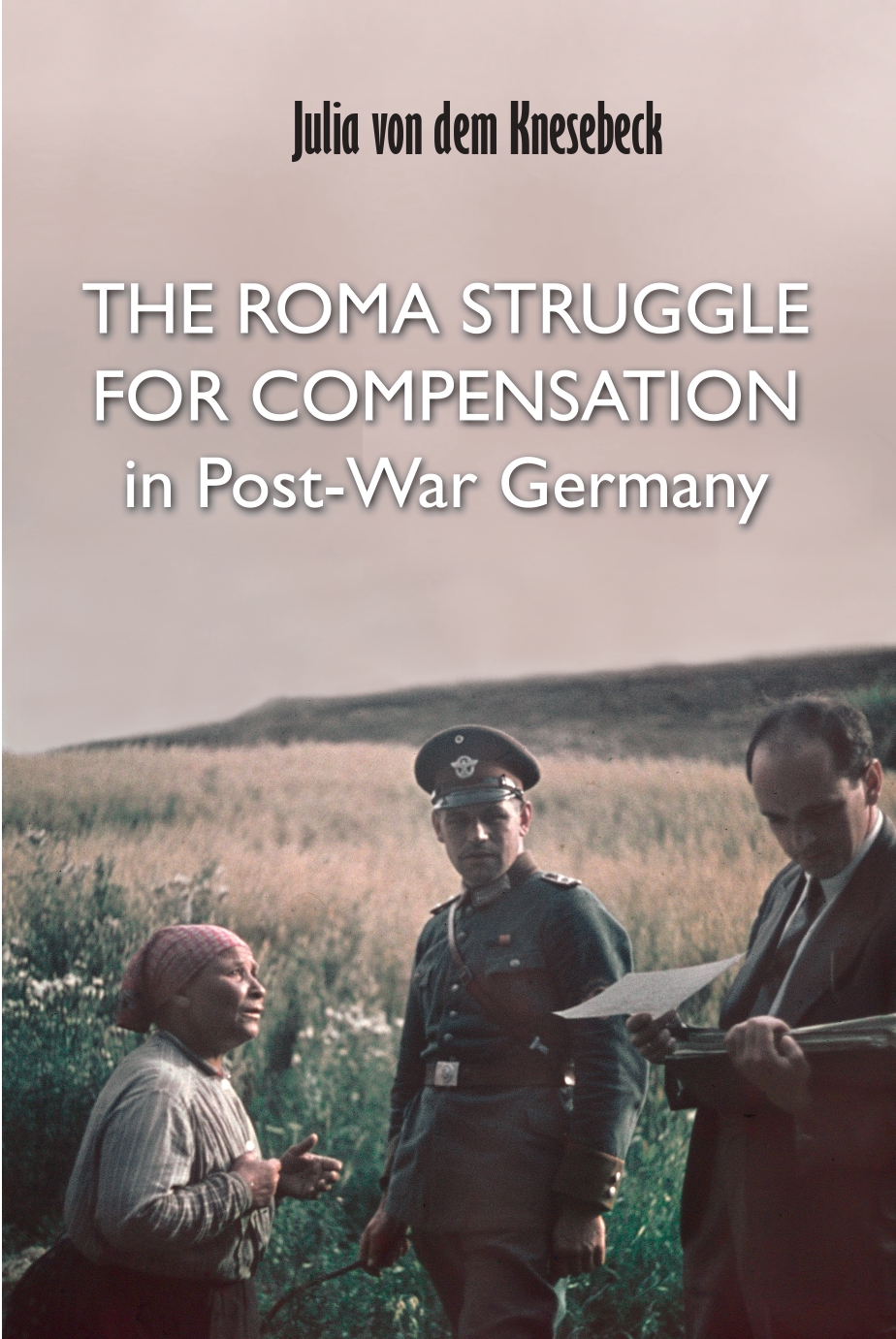
The Roma Struggle for Compensation in Post-War Germany
Julia von dem Knesebeck (2011) The Roma Struggle for Compensation in Post-War Germany, University of Hertfordshire Press, pp. 265.
Identity politics is a framework broadly utilized in the humanities and social sciences to define the forms and construction of various identities. The term also serves as a tool to promote civic, individual, and cultural ideologies. Identity politics refers to identification with, or sense of belonging to, a particular group based on nationality, ethnicity, gender, sexuality, religion, race, social background, class, or other identifying factors. The authors in the section grapple with identity as a reflection of an individual or group understanding of themselves collectively as well as the subjectification by others. Ioanida Costache Nicolae Gheorghe in dialogue with Iulius Rostas Ian Hancock Damian Le Bas ⊗ Restricted article. Only available for ERIAC Members Adrian Marsh Adrian Marsh & Elin Strand Mihai Surdu & Martin Kovats Dunajeva, Jekatyerina Romani leaders, activists, and intellectuals together work to promote visibility, equality, and dignity for Romani peoples. The first generation of activists (ca. 1940s-1970s) laid the foundation for a strong cultural and political Roma movement based on self-representation by championing autonomy, freedom, Romani arts and culture, identity emancipation, and leadership. From 1971 on the Romani political movement and organizational representation strengthened the public Romani civil rights activism and human rights defenders’ visibility across the world. Osman Balic Savelina Danova–Russinova et. al Sevdija Demirova European Roma Rights Centre Csaba Fenyes & Timeo Danaos Angela Kocze Angela Kocze Angela Kocze & Marton Rovid Maria Bogdan Andrzej Mirga ⊗ Restricted article. Only available for ERIAC Members Iulius Rostas Iulius Rostas Iulius Rostas Marko Stenross Pedro Aguilera Cortés Jan Selling Romani Feminist scholarship is a progressive wave of thought within Romani studies, feminist movements, knowledge production, and human rights discourse. Addressing Romani Feminist emancipation, this body of literature holds both activist and academic commitments. These scholars make important contributions not only to the social sciences, but also make valuable interventions for policymakers, and social and community services as well. Given the body of knowledge Romani feminist thought has generated from the lived experiences of Romani subjects, the need to critically discuss, and challenge the intersectional antigypsyism, anti-Romani racism across Europe emerges. Ethel Brooks Nicoleta Bitu Laura Corradi Anna Csilla Daroczi & Jelena Jovanovic Carmen Gheorge Rita Izsak Jelena Jovanovic & Angela Kocze & Lidia Balogh Angela Kocze Margareta Matache Angela Kocze & Nidhi Trehan Gwendolyn Albert & Marek Szilvasi In the last decade academic discourses, European social movements, and public discourse features more recognition of Romani LGBTQI. This recognition is a testament to the work of those openly out Romani LGBTQI activists, scholars, and their alliances, who were pioneers in raising their voices to challenge their systemic erasure. Romani LGBTQI, racialized peoples, feminists, sex-workers, stigmatized communities with AIDS and HIV, and people with disabilities share a collective aim of challenging the status quo—standing together to demand (not ask) for their, our, fundamental human rights. Daniel Baker Daniel Baker, Christine V. Lee & Isaac Blake Ethel Brooks Laura Corradi Arman Heljic Arman Heljic Heljic, Arman Djordje Jovanovic Vera Kutic Dezso Mate Dezso Mate Dezso Mate Dezso Mate David Tiser Katalin Barsony Maria Bogdan, Andrew Ryder, Marius Taba ⊗ Restricted article. Only available for ERIAC Members Maria Bogdan Ioanida Costache Rajko Djuric Aladar Horvath Gilda-Nancy Horvath Angela Kocze ⊗ Restricted article. Only available for ERIAC Members Ken Lee Adrian Marsh Margareta, Matache Margareta Matache ⊗ Restricted article. Only available for ERIAC Members Andrzej Mirga, Margareta Matache & Jacqueline Bhabha Anna Mirga-Kruszelnicka Surdu, Mihai & Rappold, A., Gudrun & Lipphardt Veronika Violeta Vajda Antigypsyism or anti-Roma racism is a transhistorical phenomenon that comprises special forms of racism that directly affect Romani people regardless of time and place. Antigypsyism refers to and theorizes the daily intolerance and racist attitude towards those who are known in the public, for example, as Gypsy, Roma Travellers, Ashkali Bayash, Cigány Dom, Gitano, Gitan, Kaale, Sinti, etc. Romani peoples have long been “Othered” in European society. The authors in this section trace the genealogy of antigypsyism as well as its manifestations both historically and in contemporary society. Ethel Brooks & Colin Clark & Iulius Rostas ⊗ Restricted article. Only available for ERIAC Members Colin Clark Colin Clark, Dee Matthew & Vicki Burns Ismael Cortez Ismael Cortes Henriett Eva Dinok Sebijan Fejzula Sebijan Fejzula Nicolae Gheorghe Dezso Mate Anna Mirga-Kruszelnicka Iulius Rostas Iulius Rostas & Lina Vosyliūtė & Marton Kalotay Suad Skenderi & Deniz Selman Marius Taba Simona Torotcoi & Marko Pecak Valeriu, Nicolae ⊗ Restricted article. Only available for ERIAC Members Marton Rovid Romani people are often portrayed as exotic, outlandish Others in the European imagination. Thus, Roma have faced prejudice, exclusions, and persecution for centuries. Romani culture is rich, bright, and influential, however in mainstream art history and cultural narratives Romani artists lack recognition. Romani art and cultural narratives are integral to mainstream culture, yet cultural appropriation and biased representation have long overlooked the important role of Romani culture to global societies ⊗ Restricted article. Only available for ERIAC Members Baker, Daniel Isaac Blake Hamze Bytyci Sarah Carmona Ioanida Costache Rosemary Cisneros Delia, Grigore Tímea Junghaus Tímea Junghaus, Katalin Szekely ⊗ Restricted article. Only available for ERIAC Members Tímea Junghaus Erno Kallai Justyna Matkovska Matkowska, Justyna Raatzsch, J.Andre Vicente Rodríguez Eva Kovacs There is a great and ongoing debate on the origins of the many dialects that comprise the Romani language, which has also lead to debates on Romani identity, raising the following questions: When, how, and where were Roma subject to forced language assimilation and what effect did this have on speakers of Romani? What role does language play in processes of identity construction? Is it possible to construct a worldwide Romani language standardization for the next generations? This section seeks to answer these questions. Marcel Courthiade Rajko Djuric Ian Hancock ⊗ Restricted article. Only available for ERIAC Members Hristo Kyuchukov Hristo Kyuchukov Hristo Kyuchukov ⊗ Restricted article. Only available for ERIAC Members Anna Orsos &Eszter Gergye Anna Orsos Anna Orsos & Eszter Gergye Yaron Matras ⊗ Restricted article. Only available for ERIAC Members This section presents research on experiences of Romani children in educational systems. A critical issue vis-à-vis Romani education is the fact that the segregation of Romani children in schools continues to be practiced in various forms across Europe and the Balkans, despite numerous projects, policies, and strategies seeking to end it. These authors discuss this and other issues, challenges, and paths forward in creating equitable education opportunities from Roma. Marko Stenroos & Jenni Helakorpi Ljatif Demir Lars Lindgren & Heidi Pikkarainen Hristo Kyuchukov Solvor Lauritzen

Reclaiming Romani-ness: Identity Politics, Universality and Otherness Or, Towards a (New) Romani Subjectivity
Costache, Ioanida (2018) “Reclaiming Romani-ness: Identity Politics, Universality and Otherness Or, Towards a (New) Romani Subjectivity”, Critical Romani Studies, Vol.1, No.1, pp. 30-43.
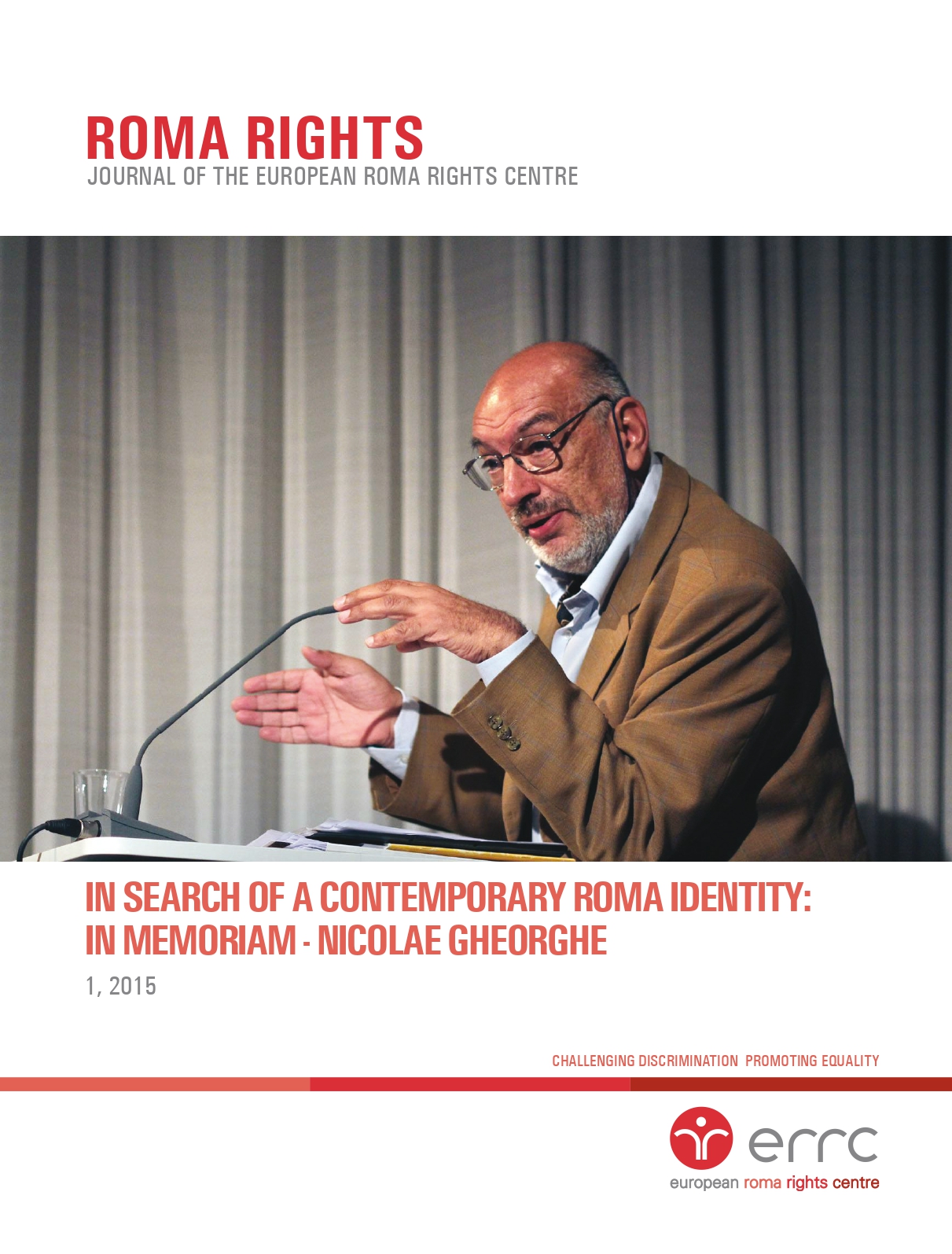
Roma or Ţigan: The Romani Identity – Between Victimisation and Emancipation
Gheorghe, Nicolae in dialogue with Rostas, Iulius (2015) “Roma or Ţigan: The Romani Identity – Between Victimisation and Emancipation”, “In Search of a Contemporary Roma Identity: In Memoriam – Nicolae Gheorghe”, Roma Rights: Journal of the European Roma Rights Centre, No.1, pp. 43-66.
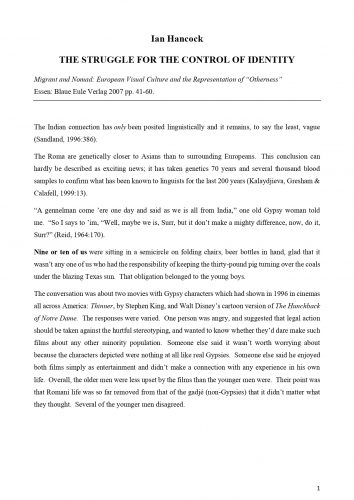
The Struggle for the Control of Identity
Hancock, Ian (2007) “The Struggle for the Control of Identity”, in Haodha, Micheal O. & Hancock, I. F. [eds.], Migrant and Nomad: European Visual Culture and the Representation of ‘Otherness’, Essen: Blaue Eule Verlag, pp. 42–60.

The possible implications of diasporic consciousness for Romani identity
Le Bas, Damian (2010) “The possible implications of diasporic consciousness for Romani identity”, inLe Bas, Damian, & Acton, Thomas A. [eds.], All Change! Romani Studies through Romani Eyes, Hatfield: University of Hertfordshire Press.
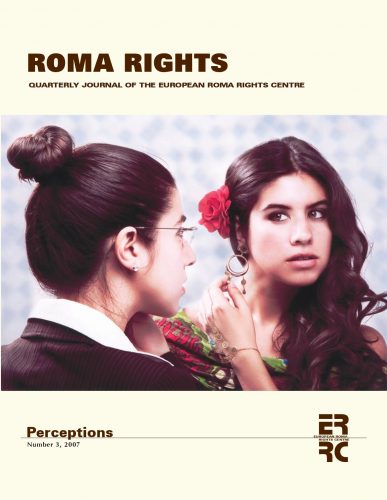
Research and the Many Representations of Romani Identity
Marsh, Adrian (2007) “Research and the Many Representations of Romani Identity”, “Perceptions”, Roma Rights: Quarterly Journal of the European Roma Rights Centre, No.3, Budapest: ERRC, pp. 17-30.
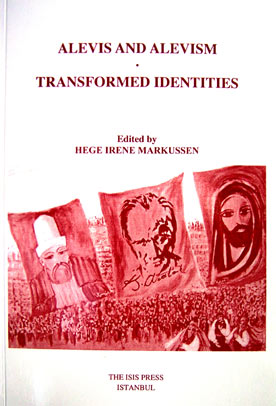
Gypsies and Alevis: the impossibility of Abdallar identity
Marsh, Adrian & Strand Elin (2005) “Gypsies and Alevis: the impossibility of Abdallar identity?”, in Markussen, Hege I. [eds.], Alevis and Alevism:
Transformed Identities, Istanbul: Isis Press, pp.162–174.
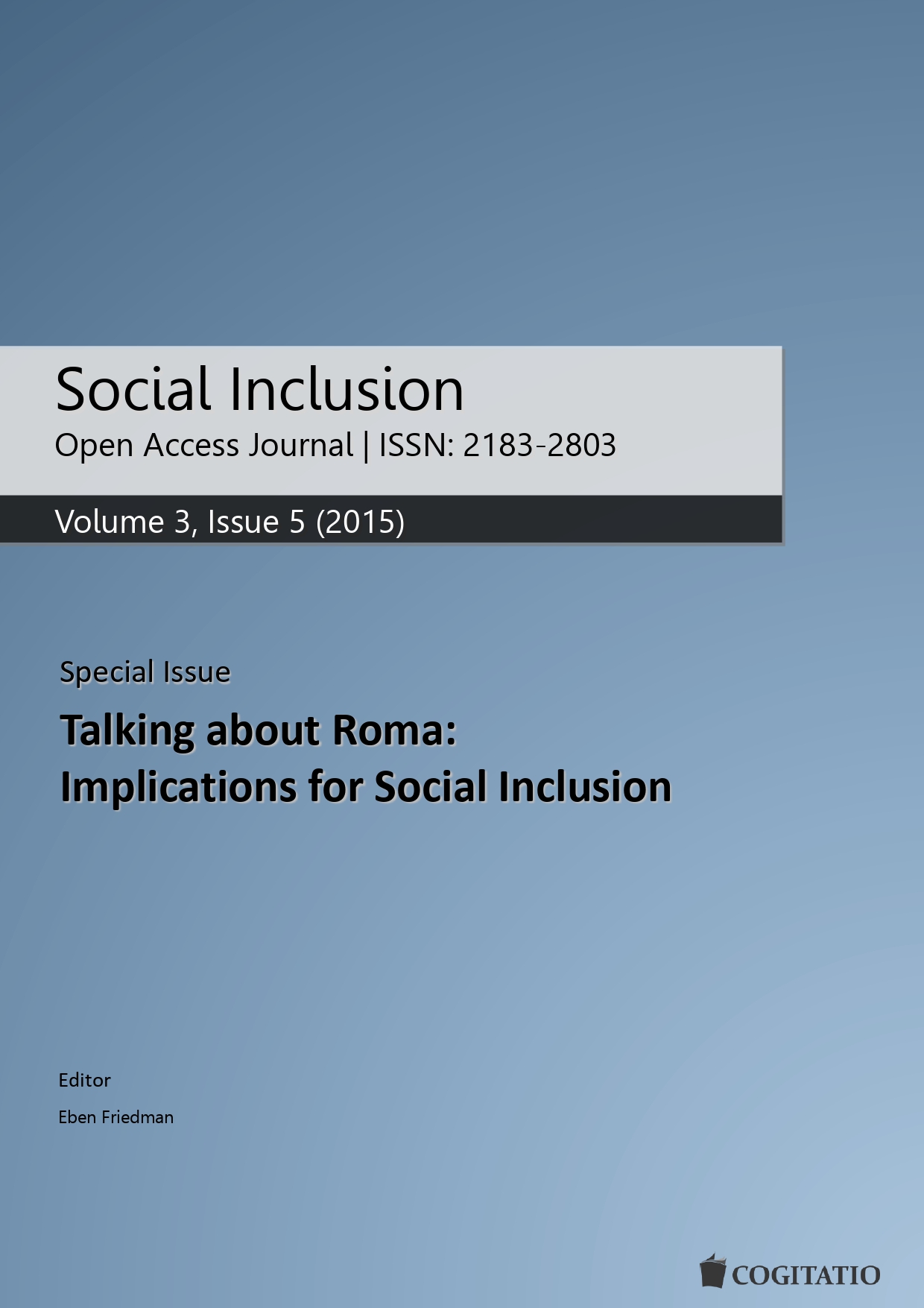
Roma Identity as an Expert-Political Construction
Surdu, Mihai & Kovats, Martin (2015) “Roma Identity as an Expert-Political Construction”, Social Inclusion, Vol. 3, No.5, pp. 5-18.
II/1. NON-ROMANI CRITICAL SCHOLARSHIP ON ROMANI IDENTITY AND POLITICS
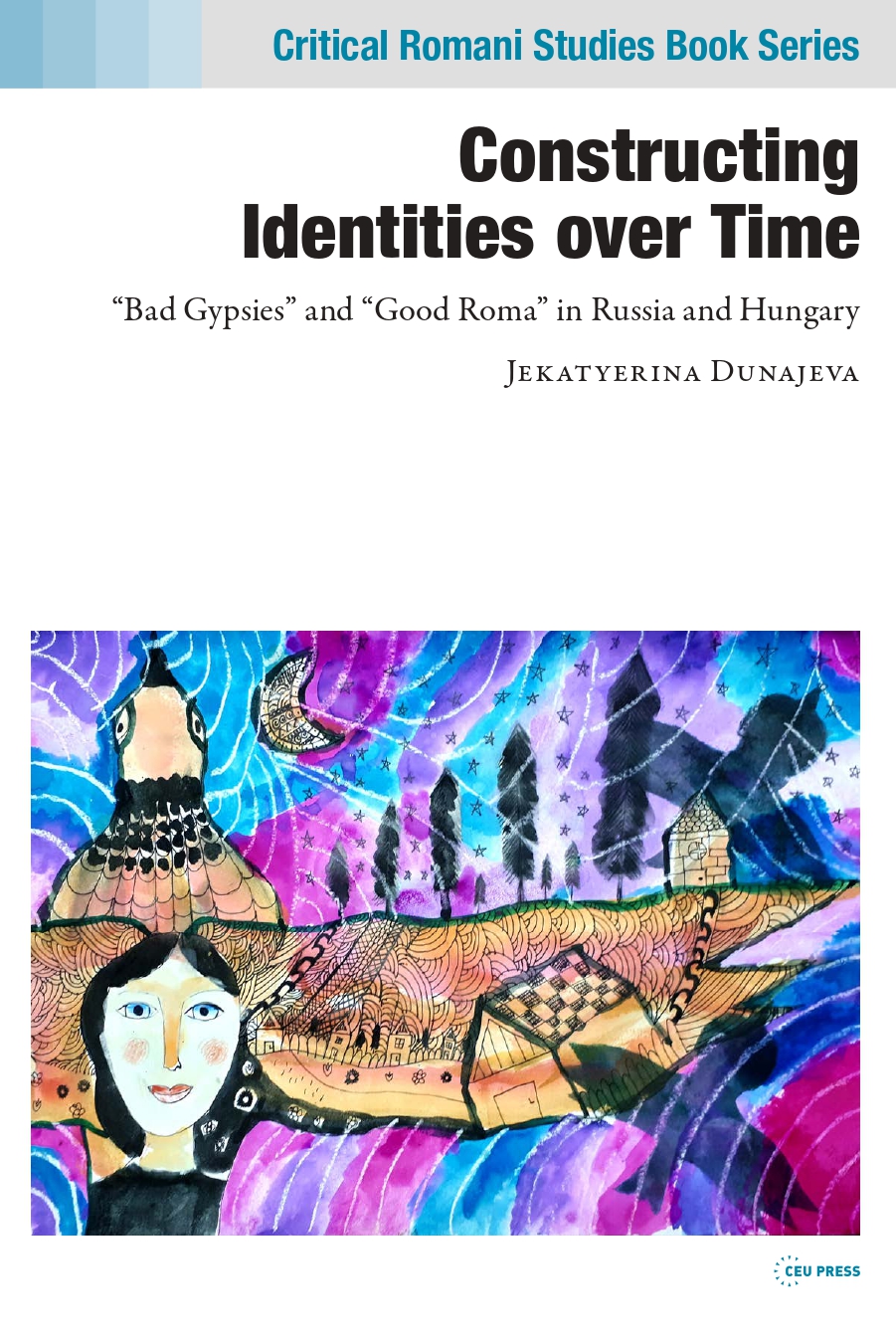
Constructing Identities over Time -“Bad Gypsies” and “Good Roma” in Russia and Hungary
Jekatyerina Dunajeva (2021) Constructing Identities over Time -“Bad Gypsies” and “Good Roma” in Russia and Hungary, Critical Romani Studies Book Series, Central European University Press, Budapest–Vienna–New York, pp. 225.
III. ROMANI MOVEMENTS – POLITICAL ACTIVISM
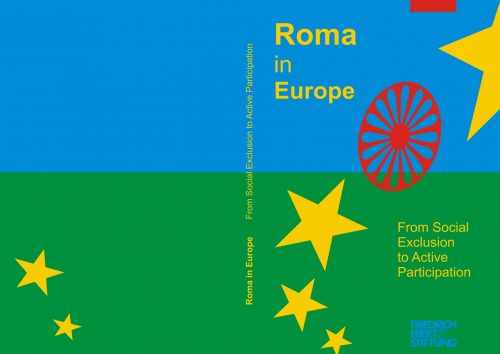
The difficult process of building a strong political Roma party in Serbia and Montenegro
Balic, Osman (2005) “The difficult process of building a strong political Roma party in Serbia and Montenegro”, in Thelen, P. [eds], Roma in Europe: From Social Exclusion to Active Participation, Skopje: Freidrich Ebert Stiftung, pp. 216–225.
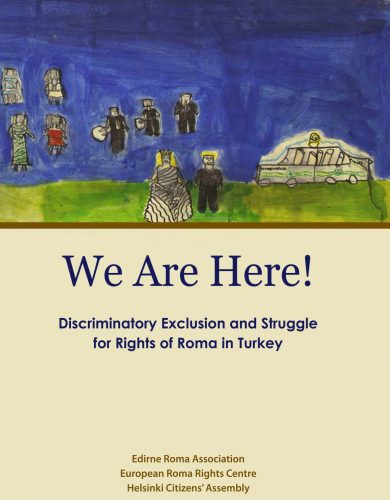
Preface – We Are Here! Discriminatory Exclusion and Struggle for Rights of Roma in Turkey
Danova–Russinova, Savelina et. al. [eds.] (2008) “Preface” We Are Here! Discriminatory Exclusion and Struggle for Rights of Roma, in Turkey, Edirne, Budapest, Istanbul: Edirne Roman Derneği, European Roma Rights Centre, Helsinki Citizens’ Assembly, pp. 1-3.

Abdulova Roma’s self-government in Shuto Orizari
Demirova, Sevdija (2005) “Abdulova Roma’s self-government in Shuto Orizari”, in Thelen, P.[eds.], Roma in Europe From Social Exclusion to Active Participation, Skopje: Freidrich Ebert Stiftung, pp.197-213.
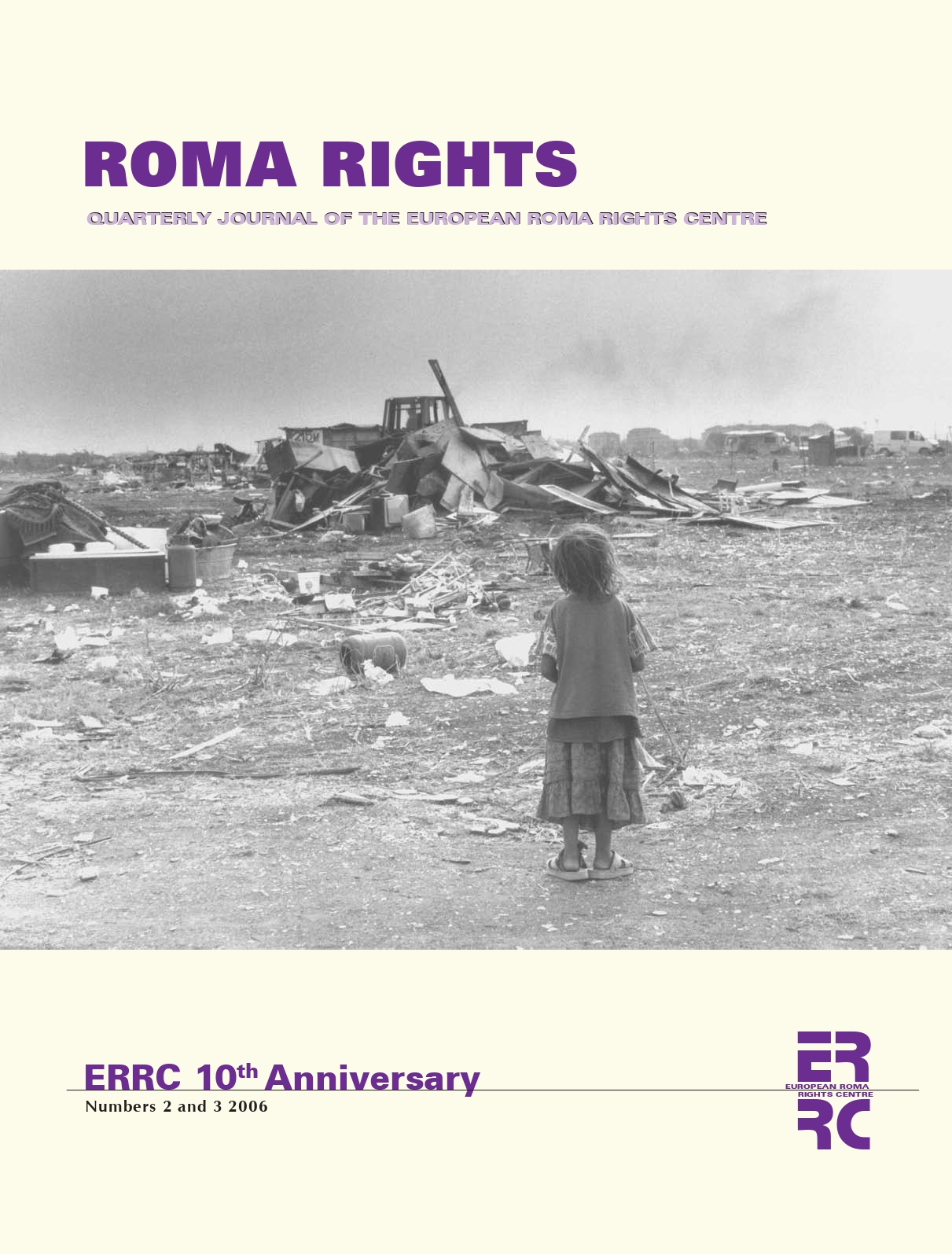
The Decade of Roma Rights Interview with Nicolae Gheorghe
European Roma Rights Centre (2006) “The Decade of Roma Rights: Interview with Nicolae Gheorghe”,”ERRC 10th Anniversary”, Roma Rights: Journal of the European Roma Rights Centre, No. 2 & 3, pp. 27-34.
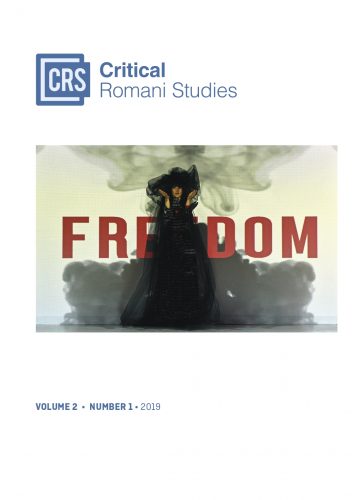
Blaming the Victims in Roma Inclusion Policies
Fenyes, Csaba & Danaos, Timeo (2019) “Blaming the Victims in Roma Inclusion Policies”, Journal of Critical Romani Studies, Vol.2, No.1, pp.4–23.
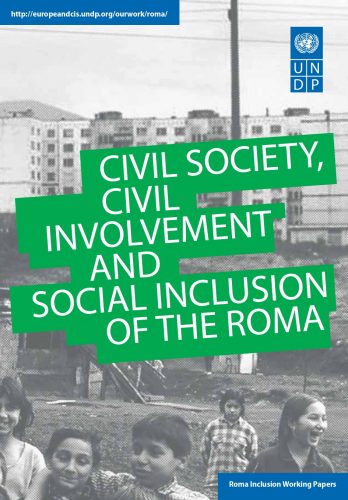
Civil Society, Civil Involvement and Social Inclusion of the Roma
Kocze, Angela (2012) “Civil Society, Civil Involvement and Social Inclusion of the Roma”, Bratislava: United Nations Development Programme, pp. 68.
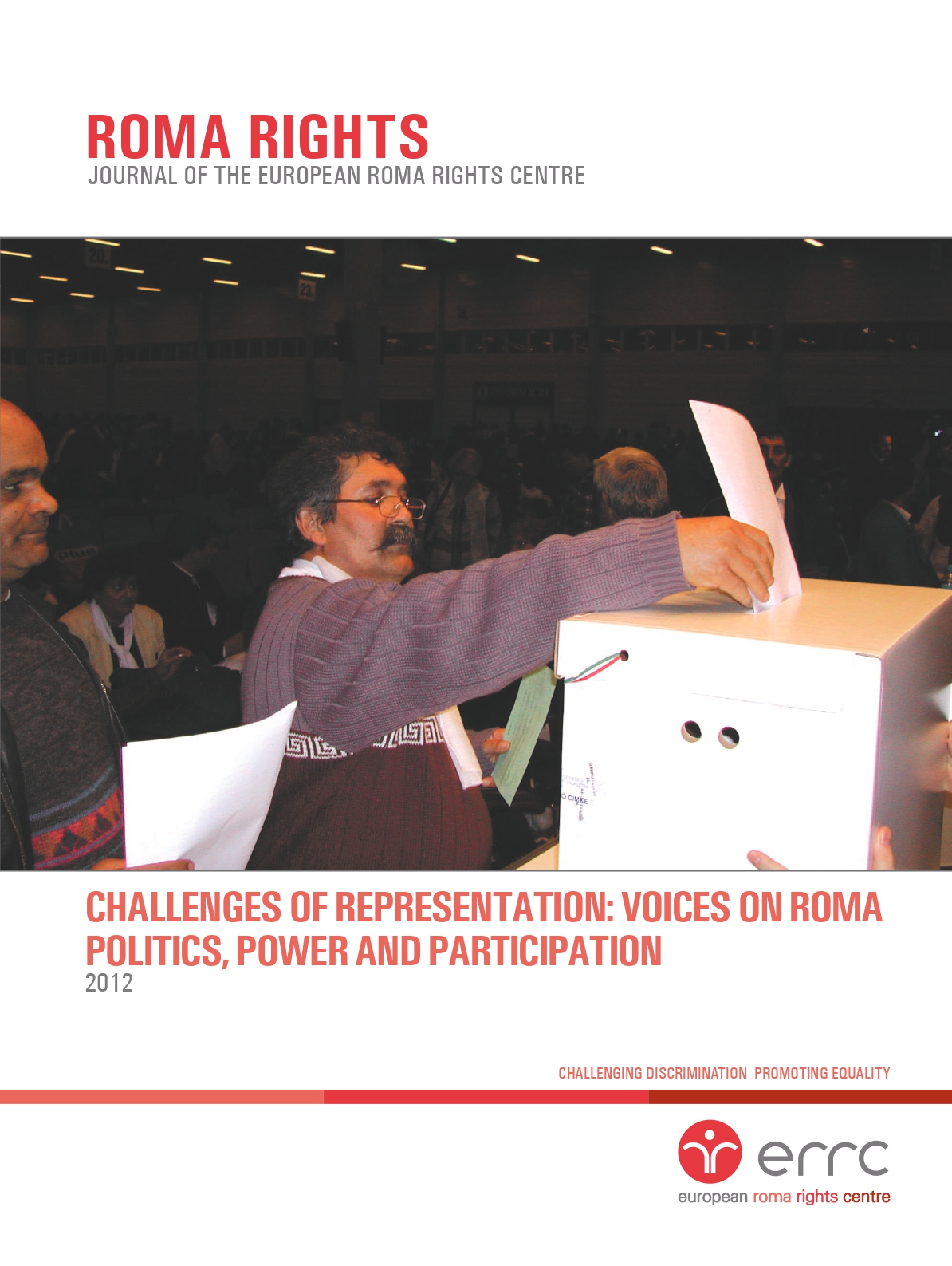
Depletion of Social Capital Shrinking Civil Society Involvement of Roma
Kocze, Angela (2012) “Depletion of Social Capital: Shrinking Civil Society Involvement of Roma”, “Challenges of Representation: Voices on Roma Politics, Power and Participation” Roma Rights: Journal of the European Roma Rights Centre, Budapest: ERRC, pp. 19-26.
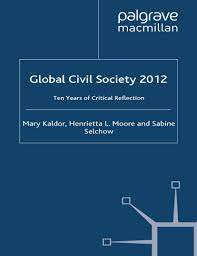
Pro-Roma Global Civil Society: Acting for, with or instead of Roma
Kocze, Angela & Rovid, Marton (2012) “Pro-Roma Global Civil Society: Acting for, with or instead of Roma?”, “Global Civil Society 2012: Ten Years of Critical Reflection”, Palgrave Macmillan, Gordonsville, pp. 110-122.
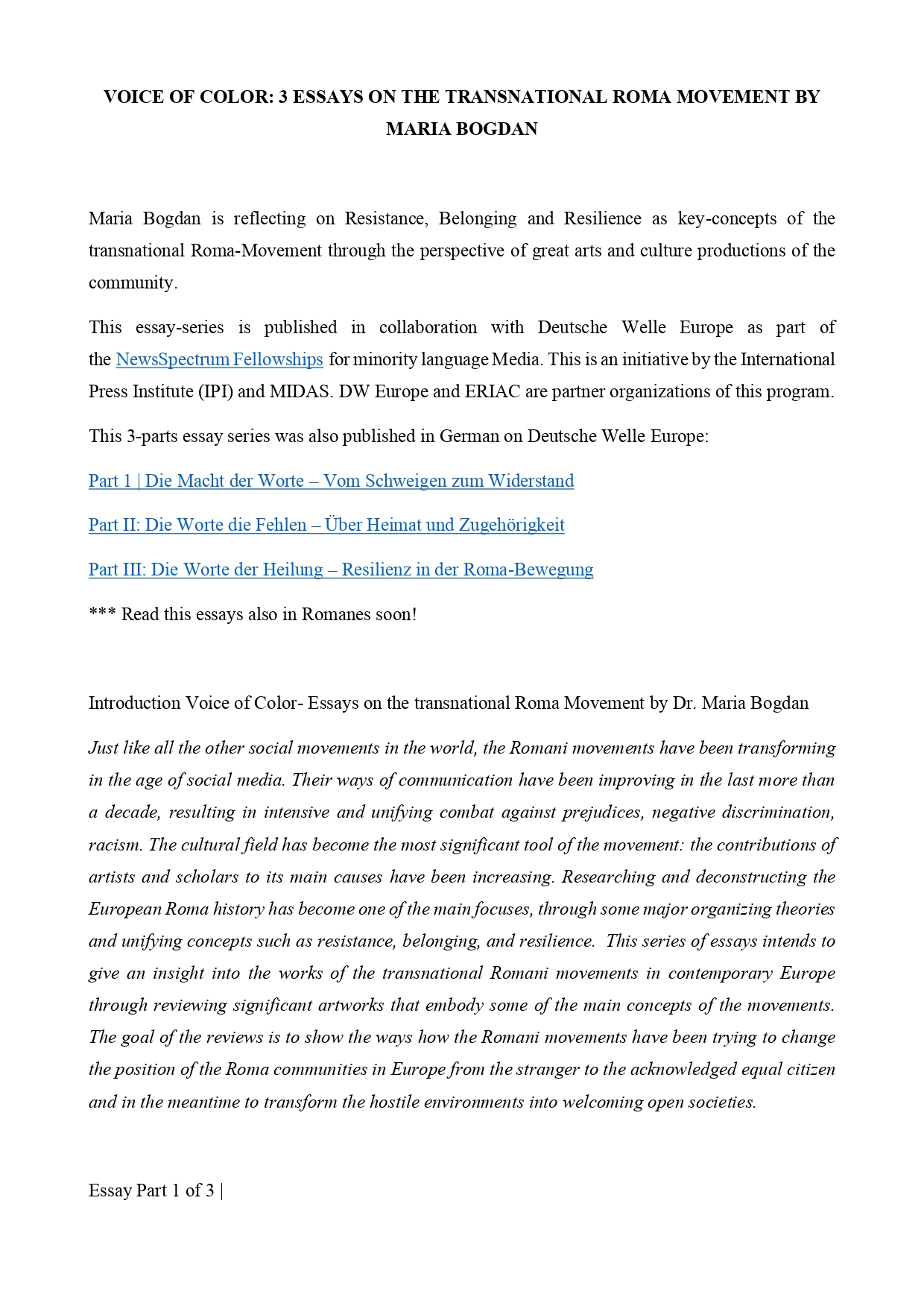
Voice of Color – 3 Essays on the Transnational Roma Movement
Bogdan, Maria (2022) “Voice of Color: 3 Essays on the Transnational Roma Movement” “Deutsche Welle & Romblog”
The Power of Words – From Silence to Resistance;
The Words that are Missing – Understanding the Concept of Belonging in the Romani Movement;
The Healing Words. Resilience in the Romani Movement.

Roma and EU-Accession: Elected and Appointed Romani
Representatives in an Enlarged EuropeMirga, Andrzej (2005) “Roma and EU-Accession: Elected and Appointed Romani Representatives in an Enlarged Europe”, in Thelen, P. [eds.], Roma in Europe: From Social Exclusion to Active Participation, Skopje: Freidrich Ebert Stiftung, pp.117-151.
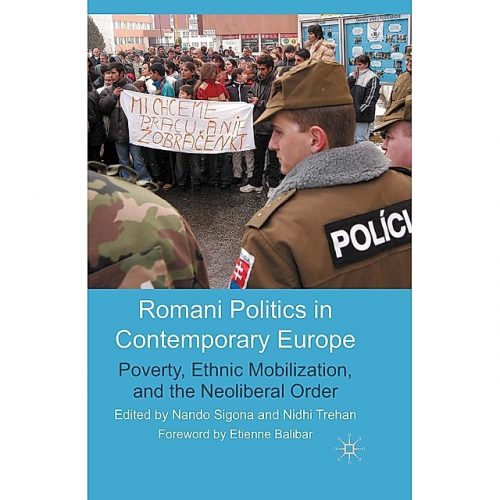
The Romani movement in Romania: institutionalization and (de)mobilization
Rostas, Iulius (2009) “The Romani movement in Romania: institutionalization and (de)mobilization”, in Segona, N., Trehan, N. [eds.], Romani Politics in Contemporary Europe: Poverty, Ethnic Mobilization, and the Neoliberal Order, Palgrave Macmillan, London, pp. 159-185.
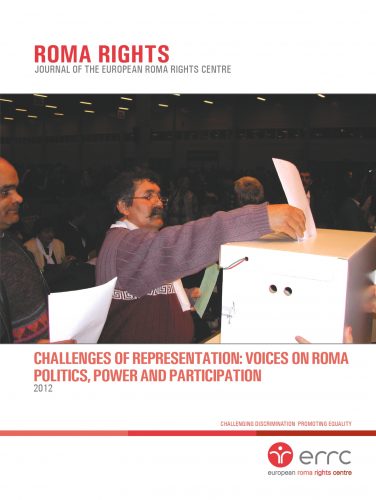
Roma Participation: From Manipulation to Citizen Control
Rostas, Iulius (2012), “Roma Participation: From Manipulation to Citizen Control”, “Challenges of Representation: Voices on Roma Politics, Power and Participation” Roma Rights: Journal of the European Roma Rights Centre, pp. 3-7.
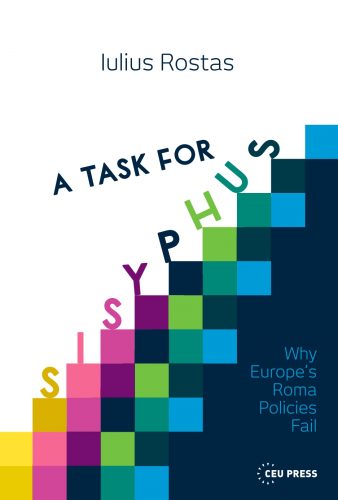
A Task for Sisyphus: Why Europe’s Roma Policies Fail
Rostas, Iulius (2019) A Task for Sisyphus: Why Europe’s Roma Policies Fail, Budapest & New York: Central European University Press, pp.303.
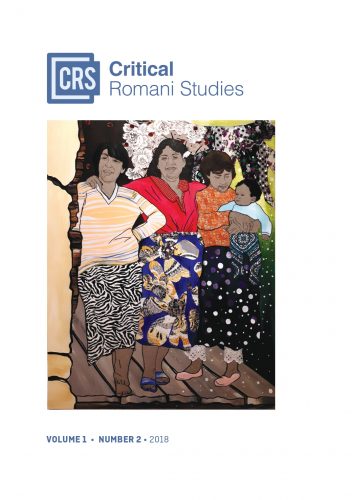
Power and Hierarchy among Finnish Kaale Roma: Insights on Integration and Inclusion Processes
Stenroos, Marko (2018) “Power and Hierarchy among Finnish Kaale Roma: Insights on Integration and Inclusion Processes”, Journal of Critical Romani Studies, Vol.1, No.2, pp. 6-23.
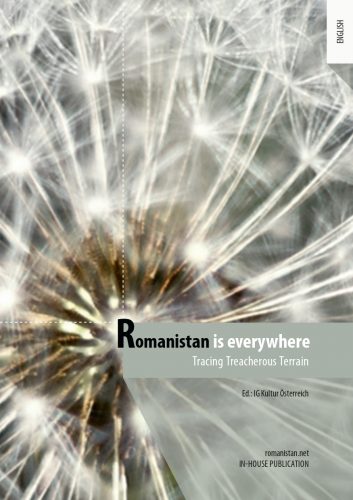
A New Social Movement? Spanish Roma and Their Forms of Organization
Cortés, Pedro Aguilera (2018) “A New Social Movement? Spanish Roma and Their Forms of Organization”, in IG Kultur Österreich [eds.], Romanistan Is Everywhere: Tracing Treacherous Terrain, Vienna: IG Kultur Österreich, pp. 30-35.
III/1. NON-ROMANI CRITICAL SCHOLARSHIP ON ROMANI MOVEMENTS – POLITICAL ACTIVISM

Romani Liberation – A Northern Perspective on Emancipatory Struggles and Progress
Selling, Jan (2022) Romani Liberation – A Northern Perspective on Emancipatory Struggles and Progress, Critical Romani Studies Book Series, Central European University Press, Budapest–Vienna–New York, pp. 216.
IV. ROMANI FEMINIST THOUGHT
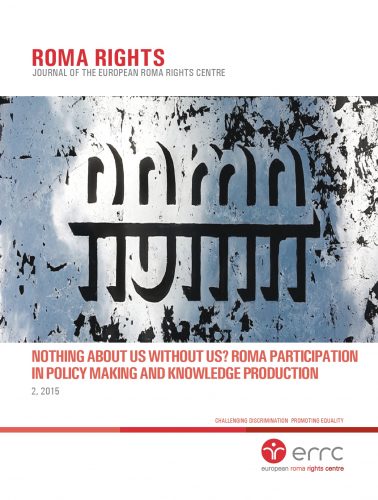
The Importance of Feminists and ‘Halfies’ in Romani Studies
Brooks, Ethel (2015) “The Importance of Feminists and ‘Halfies’ in Romani Studies: New Epistemological Possibilities”, ‘“Nothing About Us Without Us”? Roma Participation in Policy Making and Knowledge Production’ Issue, Roma Rights: Journal of the European Roma Rights Centre, No.2, Budapest: ERRC, pp. 57-61.
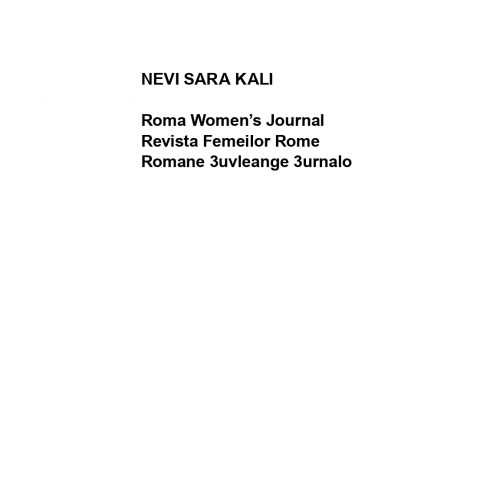
The Situation of Roma/Gypsy Women in Europe
Bitu, Nicoleta (2009) “The Situation of Roma/Gypsy Women in Europe”, Nevi Sara Kali: Roma Women’s Journal, Vol.1, No.1, Summer. pp. 222 -233.
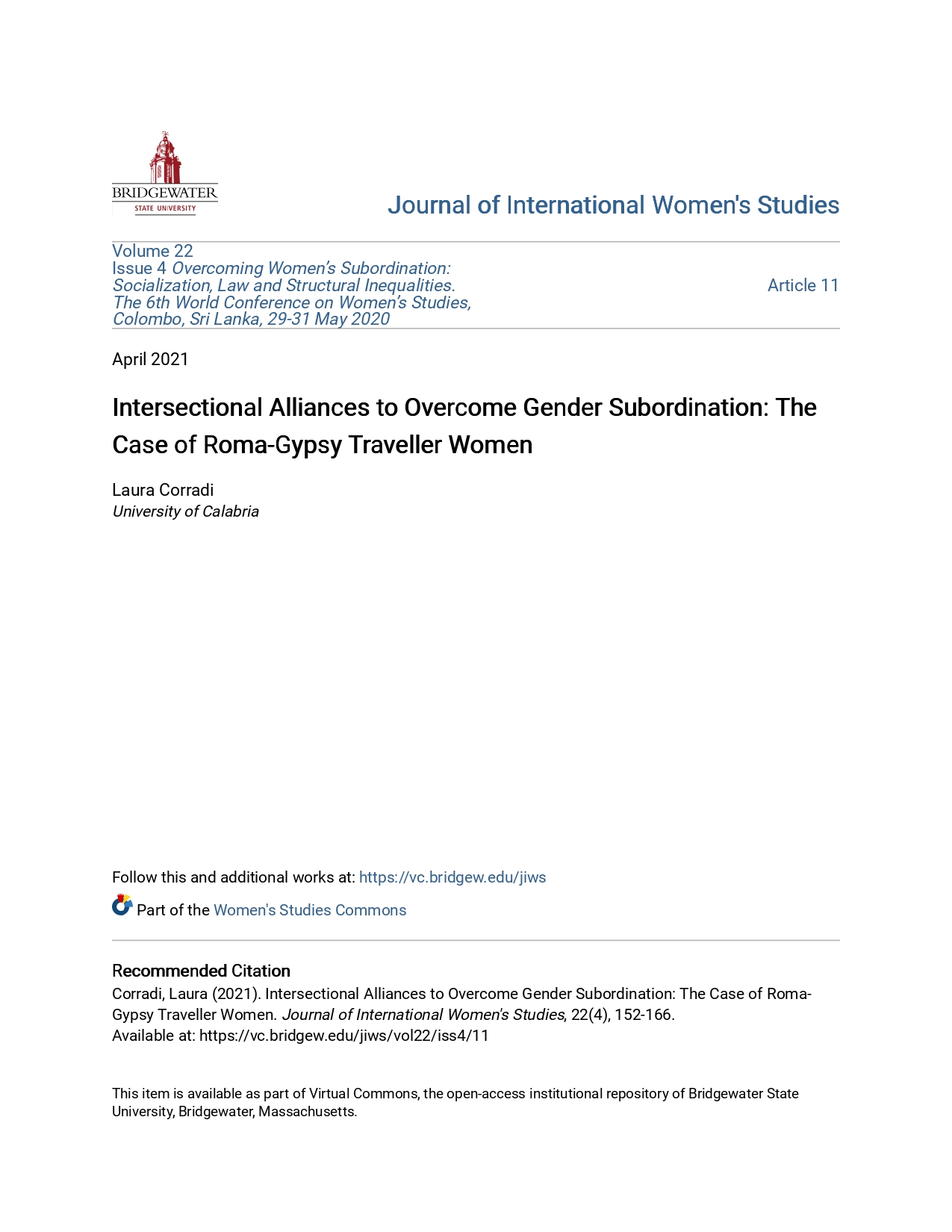
Intersectional Alliances to Overcome Gender Subordination: The Case of Roma-Gypsy Traveller Women
Corradi, Laura (2021) „Intersectional Alliances to Overcome Gender Subordination: The Case of Roma-Gypsy Traveller Women”, Journal of International Women’s Studies, Vol. 22, No. 4, pp. 152-166.

Still Missing Intersectionality: The relevance of feminist methodologies in the struggle for the rights of Roma
Daroczi, Anna Csilla & Jovanovic, Jelena (2015), “Still Missing Intersectionality, the relevance of feminist methodologies in the struggle for the rights of Roma”, ‘“Nothing About Us Without Us”? Roma Participation in Policy Making and Knowledge Production’ Issue, Roma Rights: Journal of the European Roma Rights Centre, No.2, Budapest: ERRC, pp. 79 – 83.
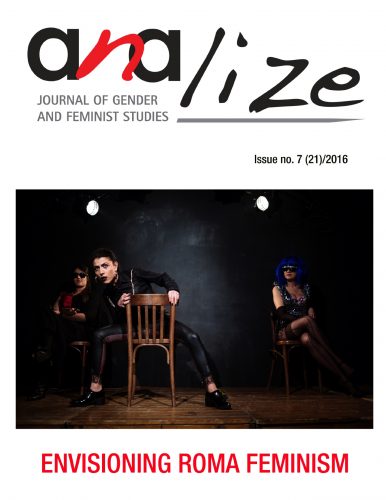
Envisioning Roma Feminism
Gheorghe, Carmen (2016) “Envisioning Roma Feminism”, Analize: Journal of Gender and Feminist Studies, 7. pp. 15-18.
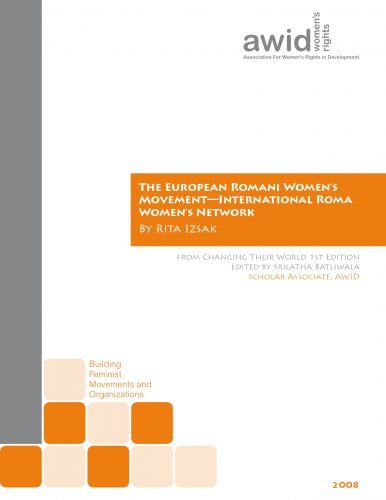
The European Romani Women’s Movement—International Roma Women’s Network
Izsak, Rita (2008) “The European Romani Women’s Movement—International Roma Women’s Network”, in Batliwala, S. [eds.], Changing Their World, 1st Edition, Building Feminist Movements and Organizations Initiative, pp.1–13.
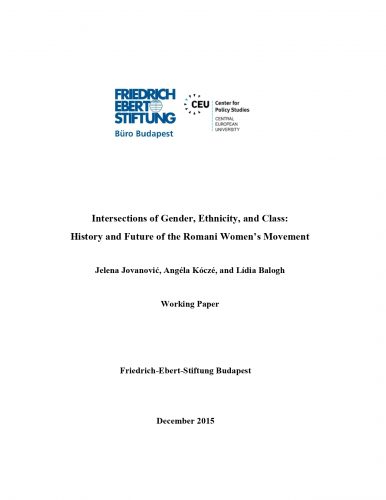
Intersections of Gender, Ethnicity and Class: History and Future of the Romani Women’s Movement
Jovanovic, Jelena & Kocze, Angela & Balogh, Lidia (2015) “Intersections of Gender, Ethnicity and Class: History and Future of the Romani Women’s Movement”, CEU Centre for Policy Studies Working Paper, from a workshop organized at Central European University, Budapest: Friedrich-Ebert-Stiftung, pp.1-16.
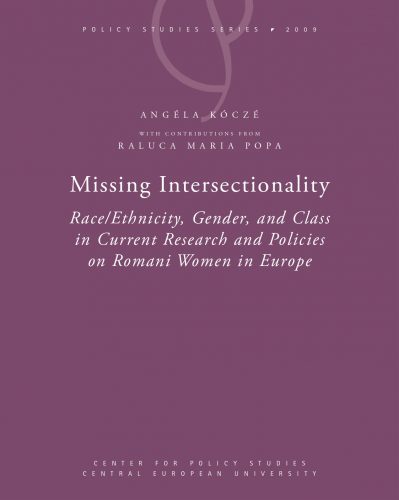
Missing Intersectionality. Race_Ethnicity, Gender, and Class in
Current Research and Policies on Romani Women in EuropeKocze, Angela (2009) “Missing Intersectionality. Race/Ethnicity, Gender, and Class in Current Research and Policies on Romani Women in Europe”, Budapest: Central European University, pp.70.
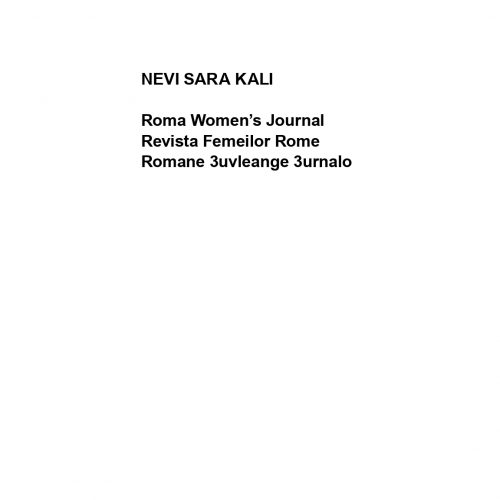
Gender Equality, Sense of Belonging, Both?
Matache, Margareta (2009) “Gender Equality, Sense of Belonging, Both?”, Nevi Sara Kali: Roma Women’s Journal, Vol.1, No.1, Summer. pp 45-59.
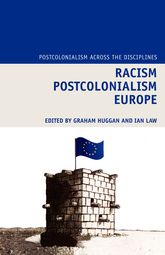
Racism, (Neo)Colonialism and Social Justice_ The Struggle for the Soul of the Romani Movement in Post-Socialist Europe
Kocze, Angela & Trehan, Nidhi (2011) “Racism, (Neo)Colonialism and Social Justice: The Struggle for the Soul of the Romani Movement in Post-Socialist Europe”,in Huggan,Graham & Law, Ian [eds.], Racism Postcolonialism Europe, Liverpool: Liverpool University Press, pp.50-73.
IV/1. NON-ROMANI CRITICAL SCHOLARSHIP ON ROMANI FEMINIST THOUGHT
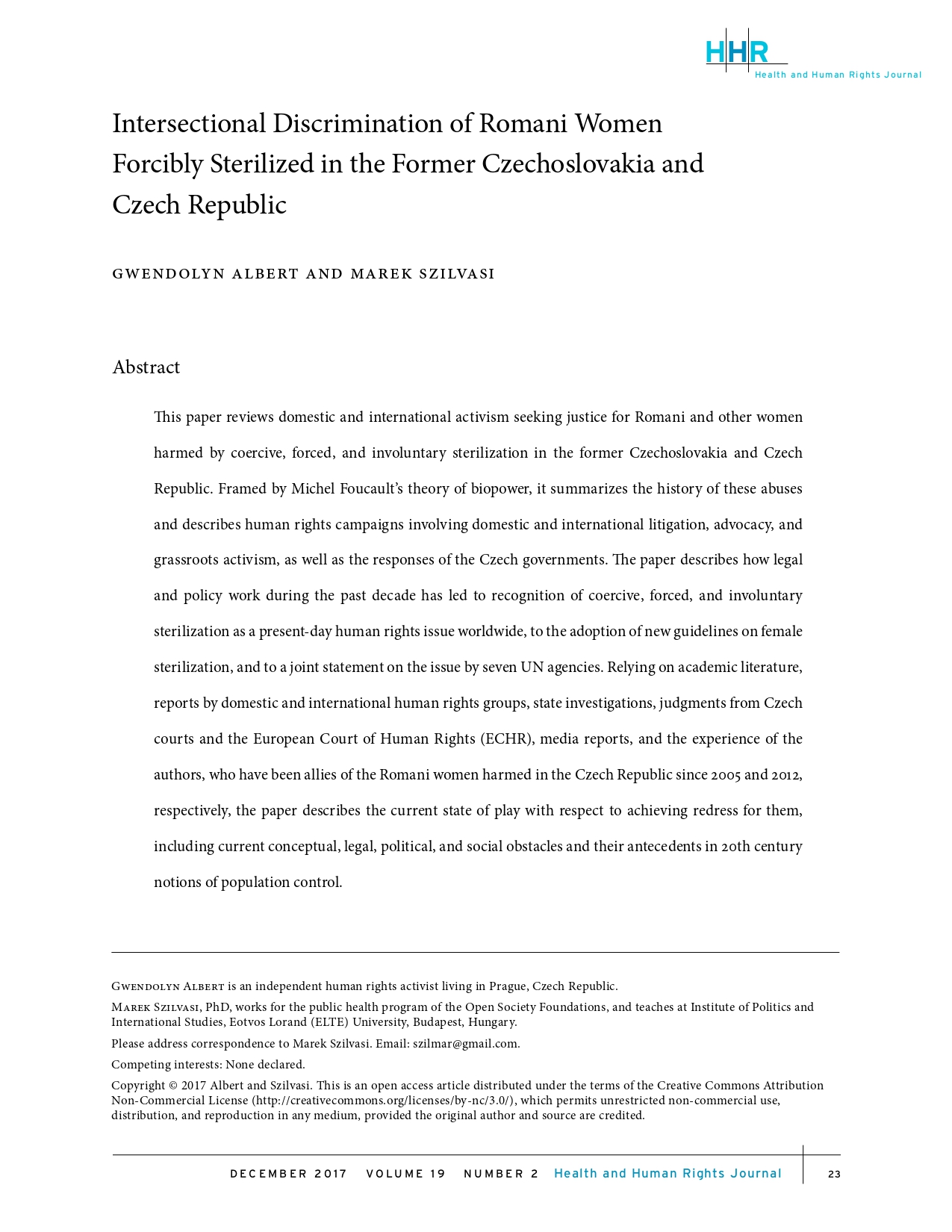
Intersectional Discrimination of Romani Women Forcibly Sterilized in the Former Czechoslovakia and Czech Republic
Albert, Gwendolyn & Szilvasi, Marek (2017) „Intersectional Discrimination of Romani Women Forcibly Sterilized in the Former Czechoslovakia and Czech Republic”, Health and Human Rights Journal, Vol. 19, No.2, pp.23-34.
V. ROMANI LGBTQI MOVEMENT

The Queer Gypsy
Baker, Daniel (2015) “The Queer Gypsy”, ‘“Nothing About Us Without Us”? Roma Participation in Policy Making and Knowledge Production’ Issue, Roma Rights: Journal of the European Roma Rights Centre, No.2, Budapest: ERRC, pp. 87–93.
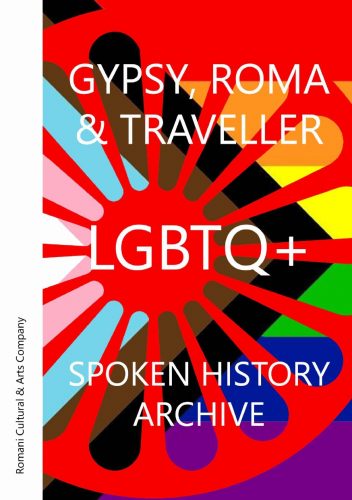
Gypsy, Roma & Traveller LGBTQ+ Spoken History Archive
Baker, Daniel, Blake, Isaac, & Lee, Christine V. (2021) “Gypsy, Roma & Traveller LGBTQ+ Spoken History Archive”, Cardiff – Berlin: Romani Cultural & Arts Company; European Roma Institute for Arts and Culture (ERIAC), pp.186.

(Mis)Recognitions: Romanies, Sexualities, Sincerities
Brooks, Ethel C. (2009) “(Mis)Recognitions: Romanies, Sexualities,Sincerities”, Nevi Sara Kali: Roma Women’sJournal, Vol.1, No.1, Summer. pp 21-29.
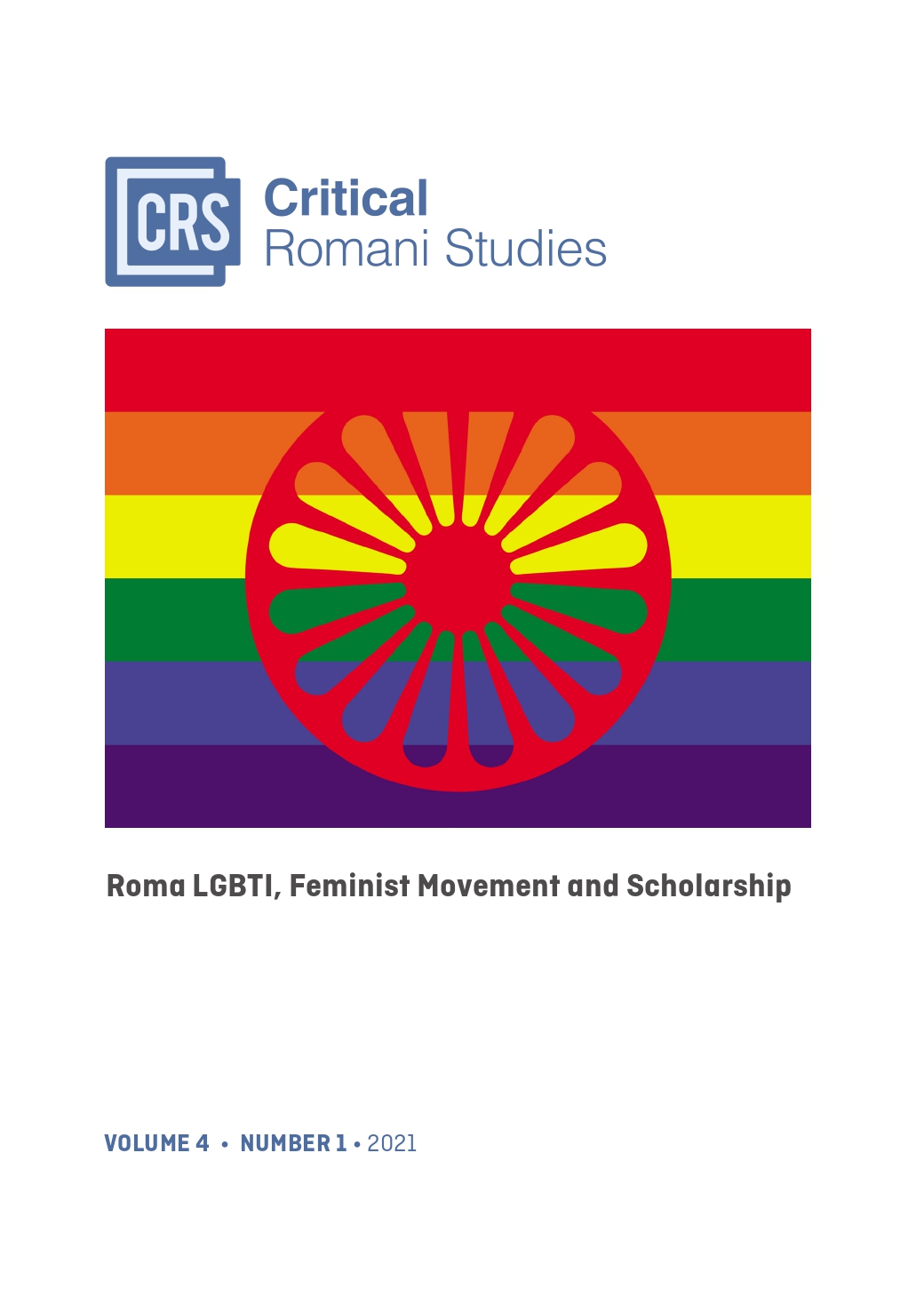
Affective Politics and Alliances in ‘Queering the Gypsy’ and Facing Antigypsyism in the LGBT Milieu
Corradi, Corradi (2021) “Affective Politics and Alliances in ‘Queering the Gypsy’ and Facing Antigypsyism in the LGBT Milieu”, Critical Romani Studies, Vol.4, No.1, pp. 14-34.

I am Not Sorry for Being Different – The Hate Speech
MonologuesHeljic, Arman (2017), “I am Not Sorry for Being Different: The Hate Speech Monologues”, The London Reader Summer, pp. 37-39.

The Revolution is here and Now_ The Revolution is Roma, Queer, and Feminist
Heljic, Arman (2017) “I am Not Sorry for Being Different: The Hate Speech Monologues”, The London Reader Summer, pp.37-39.

Staging the Romani Queer Revolution: New Approaches to the Study of Romani Queerness
Arman Heljic (2021) “Staging the Romani Queer Revolution: New Approaches to the Study of Romani Queerness”, Critical Romani Studies, Vol.4, No.1, pp. 36-55.
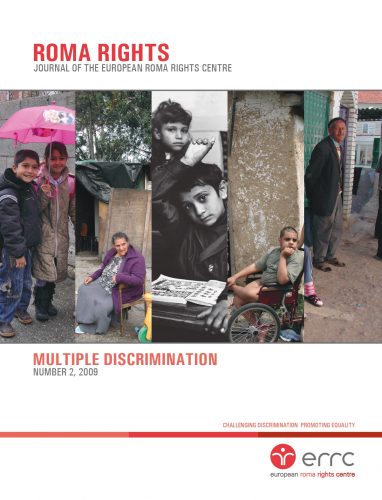
The Difference That Makes a Difference: We Need More Guts!
Jovanovic, Djordje (2009) “The Difference That Makes a Difference; We Need More Guts!” ‘Multiple Discrimination’ Issue, Roma Rights: Journal of the European Roma Rights Centre, No.2, Budapest: ERRC, pp. 41–47.

Dîuvljarke: Roma Lesbian Existence
Kutic, Vera (2013) “Dîuvljarke: Roma Lesbian Existence”, European Roma Rights Centre Gender Research Fellowship, Nis: European Roma Rights Centre – ERRC, pp. 103.

Faced with Multiple ‘Values’ – From the Perspective of the Roma LGBTQ Community
Mate, Dezso (2015) “Faced with Multiple ‘Values’ – From the Perspective of the Roma LGBTQ Community”, “Nothing About Us Without Us”? Roma Participation in Policy Making and Knowledge Production, Roma Rights: Journal of the European Roma Rights Centre, No.2, Budapest: ERRC, pp. 93-97.
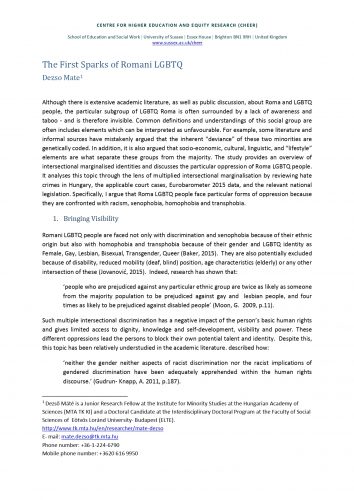
The First Sparks of the Romani LGBTQ Movement
Mate, Dezso (2017) “The First Sparks of the Romani LGBTQ Movement”, Centre for Higher Education and Equity Research (CHEER), School of Education and Social Work, University of Sussex, pp.1–6.
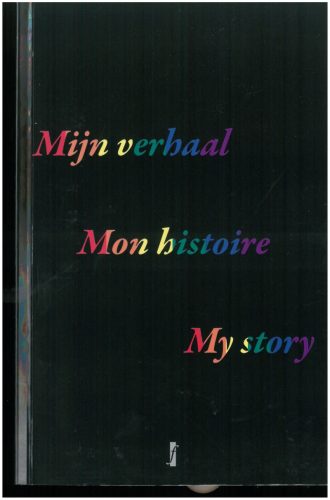
Framing Romani LGBTQI Equality Emancipation and Intersection
Mate, Dezso (2020) “Framing Romani LGBTQI Equality Emancipation and Intersection”, Mijn Verhaal, Mon Historie, My Story, Faber Publishers, Belgium, ERGO Network, Balkan LGBTQI pp.128-131.

Roma LGBTI, Feminist Movement and Scholarship
Mate, Dezso (2021) “Roma LGBTI, Feminist Movement and Scholarship”, Critical Romani Studies, Vol.4, No.1, pp. 4-12.

They become stigmatised in their own family
Tiser, David (2015) “They become stigmatised in their own family”, “Nothing About Us Without Us”? Roma Participation in Policy Making and Knowledge Production’ Issue, Roma Rights: Journal of the European Roma Rights Centre, No.2, Budapest: ERRC, pp. 99-100.
V/1. NON-ROMANI CRITICAL SCHOLARSHIP ON ROMANI LGBTIQ MOVEMENT
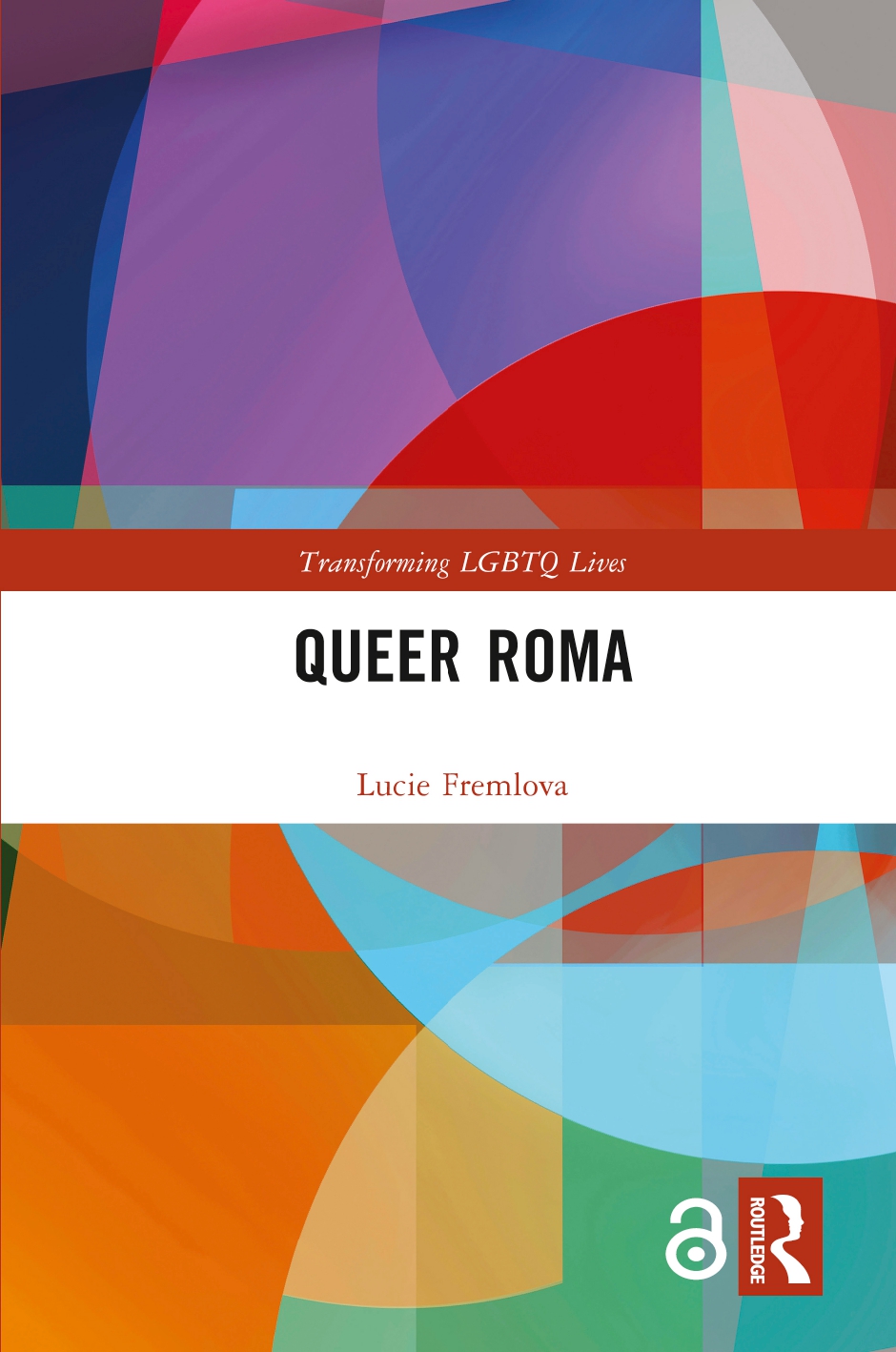
VI. KNOWLEDGE PRODUCTION
Mainstream knowledge production is often generated from an external, privileged, majoritarian viewpoint that presents a racist, classicist, exoticizing, and objectified conceptualization of Romani people. These hegemonic, frequently dehumanizing, stigmatizations exclude our own narratives, representations, and lived experiences, and limit our access to knowledge production. Romani peoples, narratives, activities, and knowledge is forgotten, in light of this legacy of exclusion. Romani scholars, more recently, have re-claimed the reins in generating awareness, visibility, Romani counter-narrative through knowledge-production and scholarship from a Romani epistemological standpoint.

Organizing Activism, Romedia Foundation – Acts Through (Social) Media
Barsony, Katalin (2013) “Organizing Activism, Romedia Foundation – Acts Through (Social) Media ”, in IG Kultur Österreich [ed.], Romanistan Is Everywhere: Tracing Treacherous Terrain, Vienna: IG Kultur Österreich pp. 67-72.

The Roma Spring: Knowledge Production and the Search for a New Humanity
Bogdan, Maria, Ryder, Andrew, & Taba, Marius. (2015) “The Roma Spring: Knowledge Production and the Search for a New Humanity”, ‘“Nothing About Us Without Us”? Roma Participation in Policy Making and Knowledge Production’ Issue, Roma Rights: Journal of the European Roma Rights Centre, No.2, Budapest: ERRC, pp. 33-37.
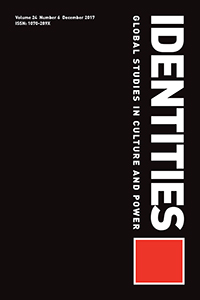
Roma Press Centre – 20 years of making a difference
Bogdan, Maria (2017), “Roma Press Centre – 20 years of making a difference”, Identities: Global Studies in Culture and Power, Vol.24, No. 6, pp. 751-759.
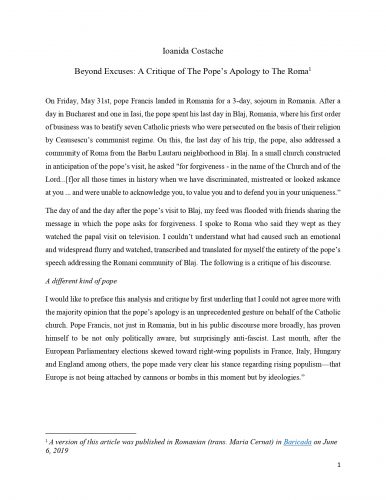
Beyond Excuses_ A Critique of The Pope’s Apology to The Roma
Costache, Ioanida (2019) “Beyond Excuses: A Critique of The Pope’s Apology to The Roma”, IOANIDA, 6th June.
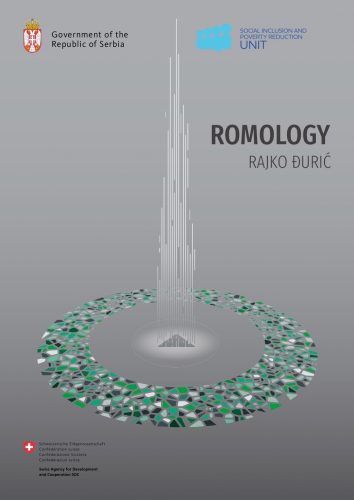
Romology, Social Inclusion and Poverty Reduction Unit
Djuric, Rajko (2001), Romology, Social Inclusion and Poverty Reduction Unit, Belgrade: Government of the Republic of Serbia.

Gadjo Nation – Roma Nation?
Horvath, Aladar (2006) “Gadjo Nation – Roma Nation?” ERRC 10th Anniversary”, Roma Rights: Journal of the European Roma Rights Centre, No. 2 & 3, pp. 53-57.

Perception, Fortune-Tellers and Truth – Images of Roma in the Media in Between Majority Society and Self-Organization
Horvath, Gilda–Nancy (2013) “Perception, Fortune-Tellers and Truth: Images of Roma in the Media in Between Majority Society and Self–Organization”, in IG Kultur Österreich [eds.], Romanistan Is Everywhere: Tracing Treacherous Terrain, Vienna: IG Kultur Österreich, pp. 36-41.

Speaking from the Margins
Kocze, Angela (2015) “Speaking from the Margins”, “Nothing About Us Without Us”? Roma Participation in Policy Making and Knowledge Production’, Roma Rights: Journal of the European Roma Rights Centre, No.2, Budapest: ERRC, pp. 83-86.
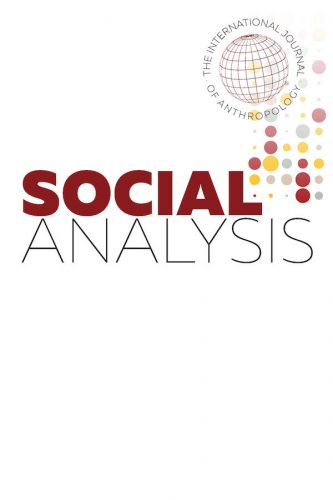
Orientalism and Gypsylorism
Lee, Ken (2000), “Orientalism and Gypsylorism. Social Analysis”, International Journal of Social and Cultural Practice, Vol. 44, No.2, Berghahn Books,pp.129-156
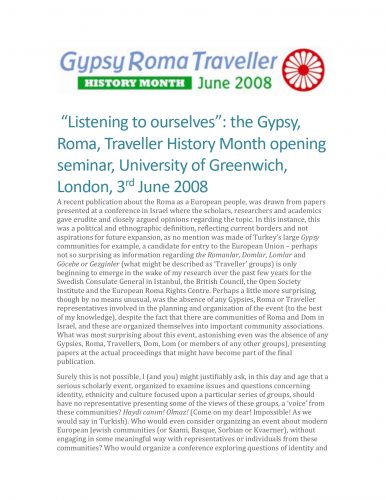
Listening to ourselves
Marsh, A. R. (2008), “Listening to ourselves”: the Gypsy, Roma, Traveller History Month opening seminar, University of Greenwich, London, 3rd June 2008, London: GRT HM.
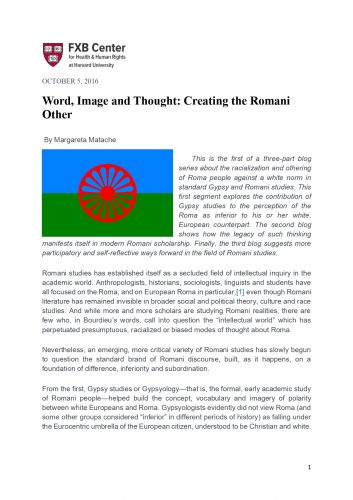
Word, Image and Thought: Creating the Romani Other
Matache, Margareta (2016), Word, Image and Thought: Creating the Romani Other, Boston, Mass.: Harvard University Roma Program, François-Xavier Bagnoud Center for Health and Human Rights.

The Legacy of Gypsy Studies in Modern Romani Scholarship
Matache, Margareta (2016) The Legacy of Gypsy Studies in Modern Romani Scholarship, Boston, Mass.: Harvard University Roma Program, François-Xavier Bagnoud Center for Health and Human Rights.
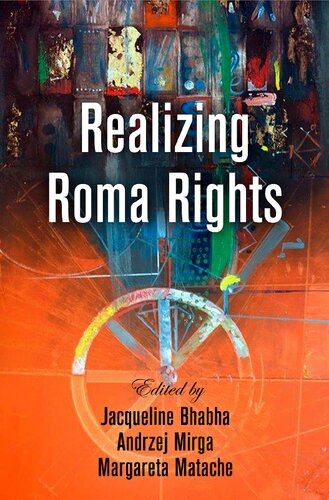
Introduction
Mirga, Andrzej, Matache, Margareta & Bhabha, Jacqueline (2017), “Introduction”, in Andrzej, M., Matache, M., & Bhabba, J., [eds.], Realizing Roma Rights, Pennsylvania Studies in Human Rights Series, Philadelphia: University of Pennsylvania Press, pp. 1-14.

Romani Studies and Emerging Romani Scholarship
Mirga–Kruszelnicka, Anna (2015), “Romani Studies and Emerging Romani Scholarship”, “Nothing About Us Without Us”? Roma Participation in Policy Making and Knowledge Production’ Issue, Roma Rights: Journal of the European Roma Rights Centre, No.2, Budapest: ERRC, pp.39-45.
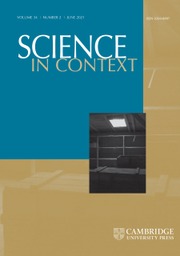
Representing Vulnerable Populations in Genetic Studies: The case of the Roma
Mihai Surdu & Gudrun A. Rappold &Veronika Lipphardt (2021) “Representing vulnerable populations in genetic studies: The case of the Roma”, Science in Context, No. 34, Cambridge University Press, pp. 69–100.
VI/1. NON-ROMANI CRITICAL SCHOLARSHIP ON KNOWLEDGE PRODUCTION
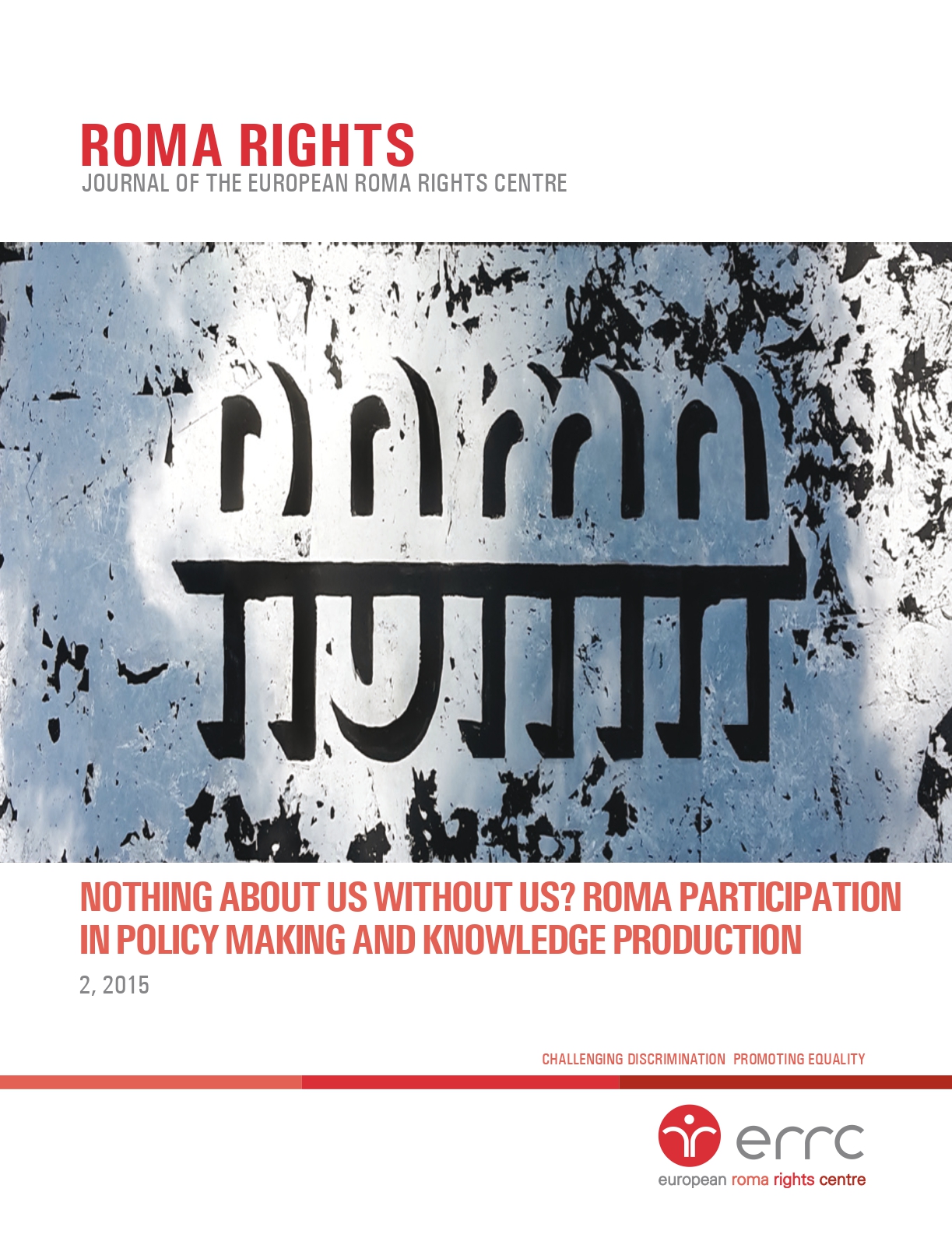
Towards ‘Critical Whiteness’ in Romani Studies
Vajda, Violeta (2015) „Towards ‘Critical Whiteness’ in Romani Studies”, “Nothing About Us Without Us”? Roma Participation in Policy Making and Knowledge Production’ Issue, Roma Rights: Journal of the European Roma Rights Centre, No.2, Budapest: ERRC, pp.47-56.
VII. ANTIGYPSYISM & ANTI-ROMANI RACISM AND RACIALIZATION
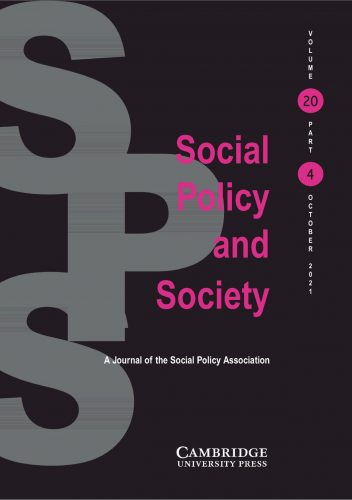
Engaging with Decolonisation, Tackling Antigypsyism: Lessons from Teaching Romani Studies at the Central European University in Hungary
Brooks, Ethel & Clark, Colin, & Rostas, Iulius (2021) “Engaging with Decolonisation, Tackling Antigypsyism: Lessons from Teaching Romani Studies at the Central European University in Hungary”, Social Policy & Society Series, Cambs.: Cambridge University Press, pp. 1-12.
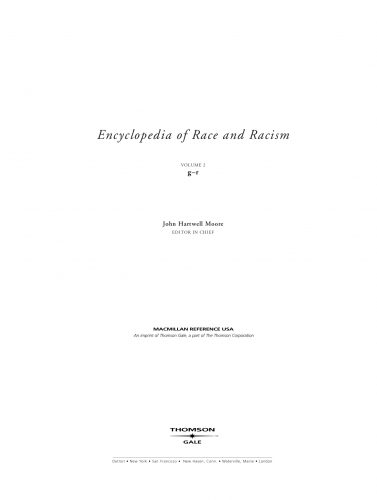
Roma
Clark, Colin (2013) “Roma”, in Mason, P. L. [eds.], Encyclopedia of Race and Racism, 2nd Ed. Detroit: Macmillan Reference USA, Thompson Gale, pp.505-507.
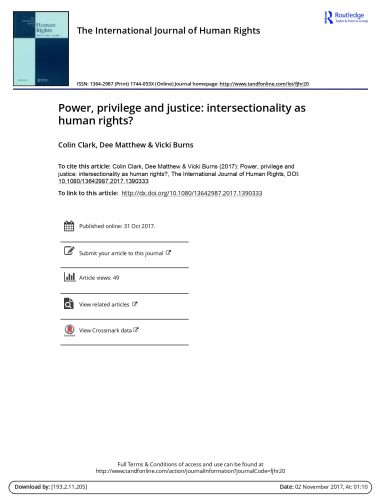
Power, privilege and justice: Intersectionality as human rights?
Clark, Colin & Matthew, Dee & Burns Vicki (2018), “Power, privilege and justice: intersectionality as human rights?”, The International Journal of Human Rights, Vol.22, no.1, pp.108-126.
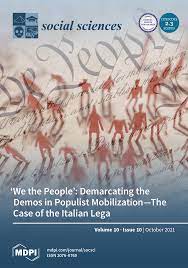
Hate Speech, Symbolic Violence, and Racial Discrimination. Antigypsyism: What Responses for the Next Decade?
Cortez, Ismael (2021) “Hate Speech, Symbolic Violence, and Racial Discrimination. Antigypsyism: What Responses for the Next Decade?”, Social Sciences, No. 10: 360, pp. 1-13.
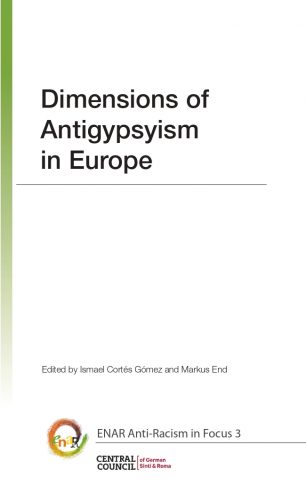
Escaping the Labyrinth of Roma Political Representation. Reflections on Common Citizenship
Cortes, Ismael (2019) “Escaping the Labyrinth of Roma Political Representation. Reflections on Common Citizenship”, in Cortés Gómez, I., End, M. [eds.], Dimensions of Antigypsyism in Europe, ENAR Anti-Racism in Focus Series 3, Brussels, Heidelberg: European Network Against Racism (ENAR), Central Council of German Sinti and Roma, pp. 366-387.
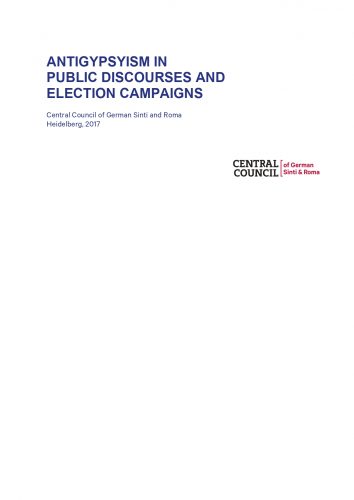
Roma as an Instrument of Politics: The Case of Miskolc (Hungary)
Dinok, Henriett Eva (2017) “Roma as an Instrument of Politics: The Case of Miskolc (Hungary)”, In: Antigypsyism In Public Discourses And Election Campaigns, Central Council of German Sinti and Roma Heidelberg, pp. 71-76.
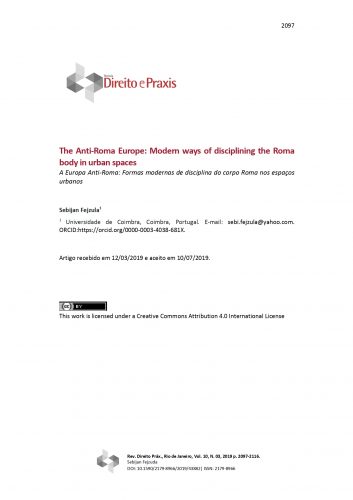
The Anti-Roma Europe: Modern ways of disciplining the Roma body in urban spaces
Fejzula, Sebijan (2019) “The Anti-Roma Europe: Modern ways of disciplining the Roma body in urban spaces”, Revista Direito e Práxis, Rio de Janeiro, Vol.10, No.03, pp. 2097-2116.
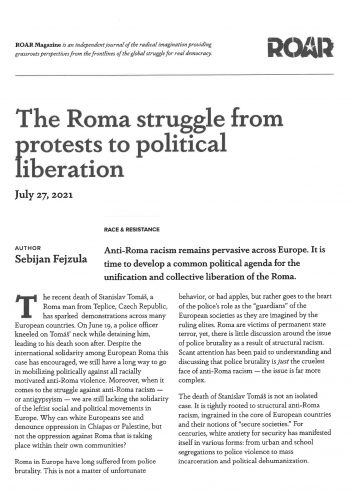
The Roma struggle from protests to political liberation
Fejzula, Sebijan (2021) “The Roma struggle from protests to political liberation”, ROAR Magazine, pp. 1-7.
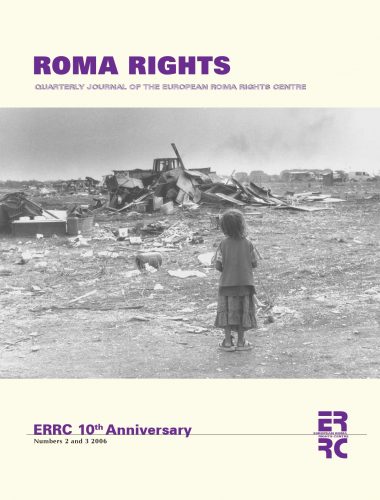
The Decade of Roma Rights: Interview with Nicolae Gheorghe
Gheorghe,Nicolae (2006) “The Decade of Roma Rights: Interview with Nicolae Gheorghe”, ‘ERRC 10th Anniversary’ Issue, Roma Rights: Quarterly Journal of the European Roma Rights Centre, No’s. 2 & 3, pp. 27–34.
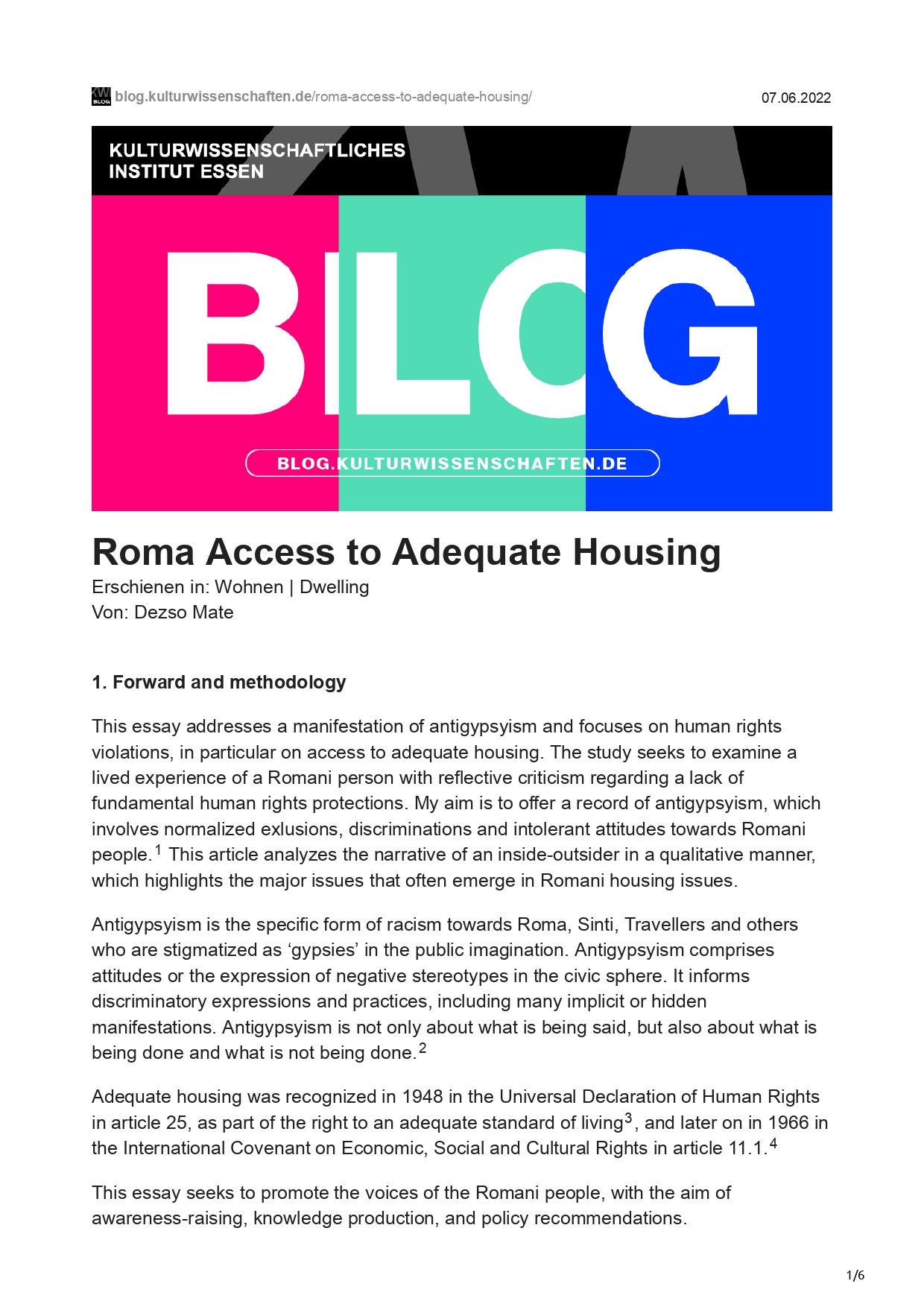
Roma Access to Adequate Housing
Mate, Dezso (2022) “Roma Access to Adequate Housing”, Kulturwissenschaftliche Institut Essen, KWI- Blog, pp. 1-6.

Challenging Anti-gypsyism in Academia: The Role of Romani
ScholarsMirga–Kruszelnicka, Anna (2018) “Challenging Antigypsyism in Academia: the Role of Romani Scholars”, Journal of Critical Romani Studies, Vol.1, No.1, pp. 8-28.
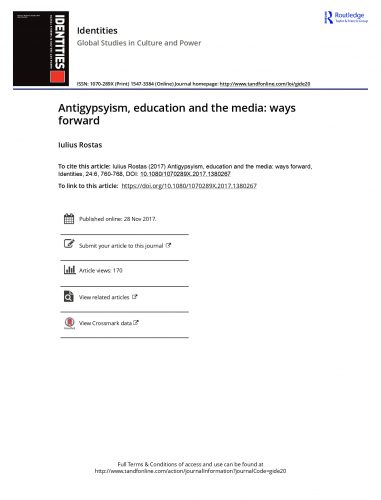
Antigypsyism, education and the media: ways forward
Rostas, Iulius (2017) “Antigypsyism, education and the media: ways forward”, Identities, Vol.24, No.6, pp. 760-768.
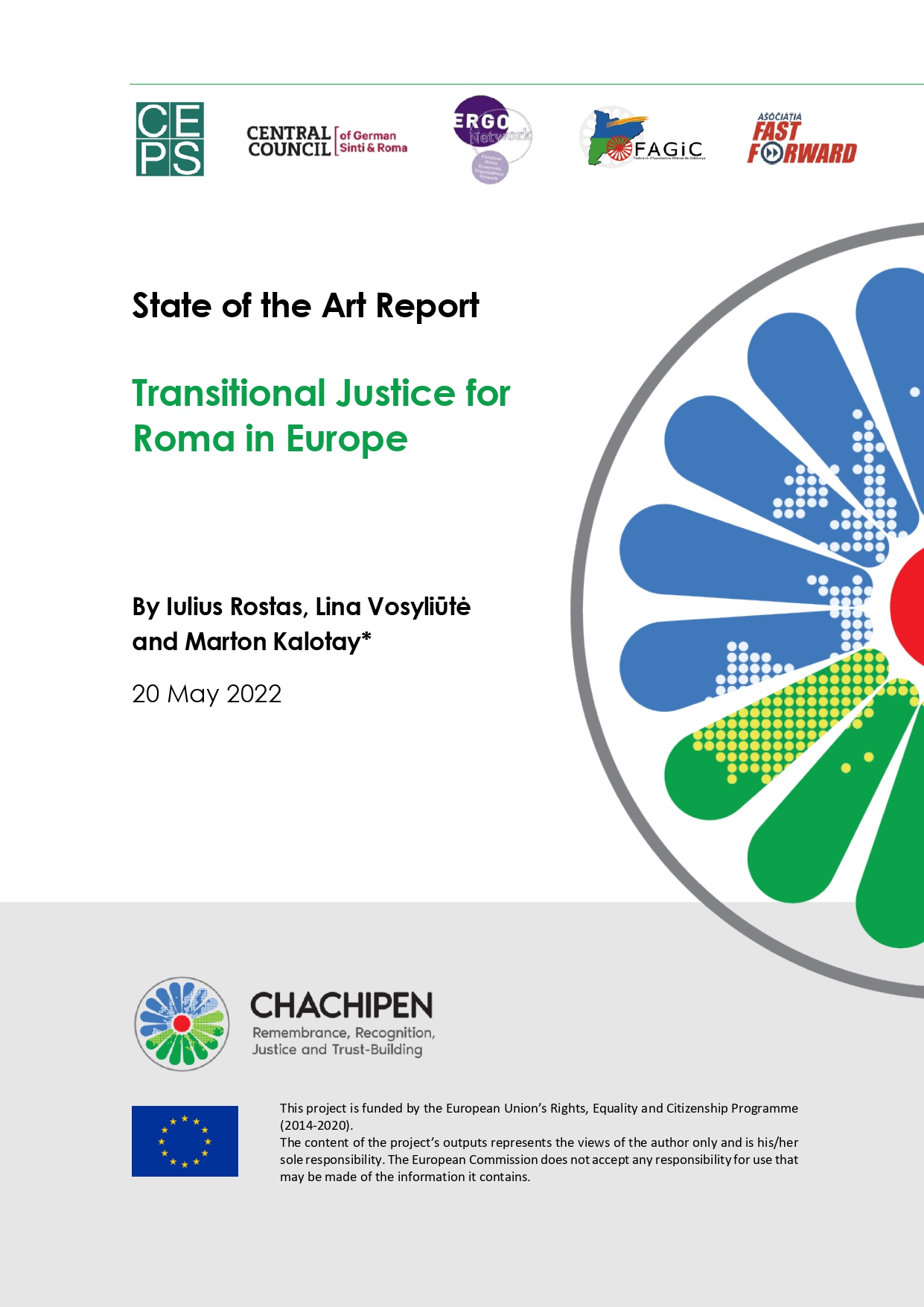
Transitional Justice for Roma in Europe
Rostas, Iulius & Vosyliūtė,Lina & Kalotay, Marton (2022) ”State of the Art Report Transitional Justice for Roma in Europe”, Chachipen, pp. 51.

Institutional Antigypsyism in the Western Balkans
Skenderi, Suad & Selman, Deniz (2019) “Institutional Antigypsyism in the Western Balkans”, in Cortés Gómez, I., End, M. [eds.], Dimensions of Antigypsyism in Europe, ENAR Anti-Racism in Focus Series 3, Brussels, Heidleberg: European Network Against Racism (ENAR), Central Council of German Sinti and Roma, pp. 215-231.
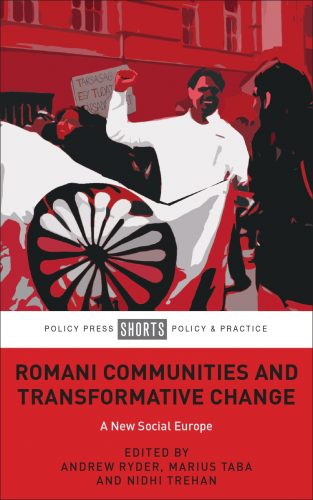
Antigypsyism in a time of neoliberalism: challenging the radical
right through transformative changeTaba, Marius (2020) “Antigypsyism in a time of neoliberalism: challenging the radical right through transformative change”, In: Ryder, Andrew,Taba, Marius, [eds.], Romani Communities and Transformative Change – A New Social Europe, Bristol: Bristol University Press, pp. 65-92.

Path to Higher Education: Combating Antigypsyism Building Roma Students’ Aspirations and Resilience
Torotcoi, Simona & Pecak, Marko (2019) “Path to Higher Education: Combating Antigypsyism Building Roma Students’ Aspirations and Resilience”, In: Cortés Gómez, I., End, M. [eds.], Dimensions of Antigypsyism in Europe, ENAR Anti-Racism in Focus Series 3, Brussels, Heidleberg: European Network Against Racism aisbl (ENAR), Central Council of German Sinti and Roma, pp.301-322.
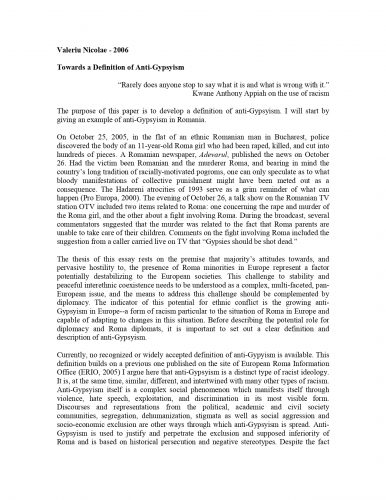
Towards a Definition of Anti-Gypsyism
Nicolae, Valeriu (2006) Towards a Definition of Anti-Gypsyism, ERGO Network, accessed: 24th November 2021, pp.1-10.
VII/1. NON-ROMANI CRITICAL SCHOLARSHIP ON ANTIGYPSYISM & ANTI-ROMANI RACISM AND RACIALIZATION
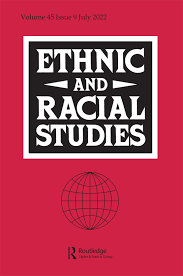
From Tackling Antigypsyism to Remedying Racial Injustice
Rovid, Marton (2021) ”From Tackling Antigypsyism to Remedying Racial Injustice”, Ethnic and Racial Studies, Vol. 45, No.9, pp. 1738-1759
VIII. ROMANI ART HISTORY AND CULTURAL NARRATIVES

Shifting Visibilities the Social Implications of a Roma Aesthetic
Daniel Baker (2017) “Shifting visibilities: the social implications of a Roma aesthetic”, Identities, Vol.24, No.6, pp. 741-750.

Romani Arts, Dance, and Advocacy Action in Wales: My Life and the Romani Cultural and Arts Company
Blake, Isaac (2021) ”Romani Arts, Dance, and Advocacy Action in Wales: My Life and the Romani Cultural and Arts Company”, Critical Romani Studies, Vol.4, No.1, pp. 126-132.

Culture Work as an Opportunity? Possibilities of Having a Social Impact in the Field of ‘Sinti and Roma Art and Culture’
Bytyci, Hamze (2013) “Culture Work as an Opportunity? Possibilities of Having a Social Impact in the Field of Sinti and Roma Art and Culture”, In: IG Kultur Österreich [eds.], Romanistan Is Everywhere: Tracing Treacherous Terrain, Vienna: IG Kultur Österreich, pp. 41-51.
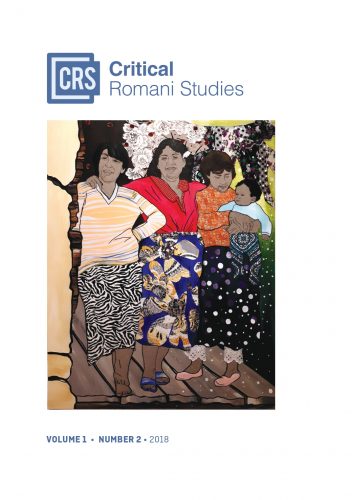
Decolonizing the Arts: A Genealogy of Romani Stereotypes in the Louvre and Prado Collections
Carmona, Sarah (2018) “Decolonizing the Arts: A Genealogy of Romani Stereotypes in the Louvre and Prado Collections”, Journal of Critical Romani Studies, Vol.1, No.2, pp.144-167.
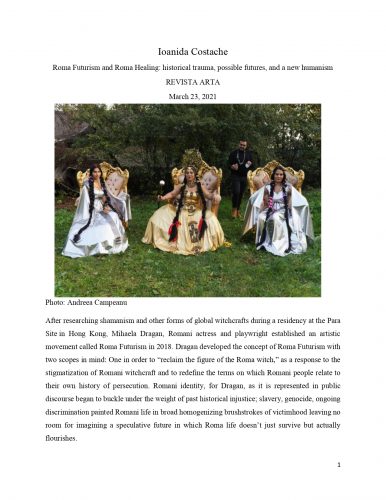
Roma Futurism and Roma Healing: Historical Trauma, Possible Futures, and a New Humanism
Costache, Ioanida (2021) “Roma Futurism and Roma Healing: historical trauma, possible futures, and a new humanism”, REVISTA ARTA, 23rd March, pp.1–10.
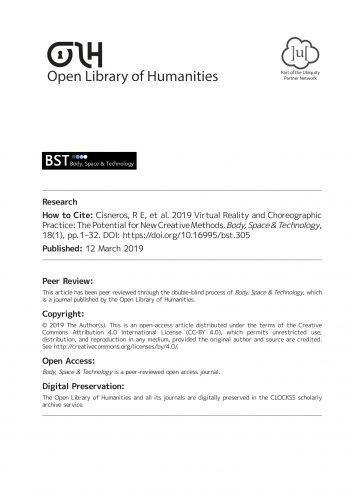
Virtual Reality and Choreographic Practice: The Potential for New Creative Methods
Cisneros, Rosemary (2019) “Virtual Reality and Choreographic Practice: The Potential for New Creative Methods”, Cisneros, R E, et al. 2019 Virtual Reality and Choreographic Practice: The Potential for New Creative Methods. Body, Space & Technology, 18(1), pp. 1–32.

Literature in Romania
Grigore, Delia (2018) “Literature in Romania”; RomArchive, Countries & Regions, pp.1-8.
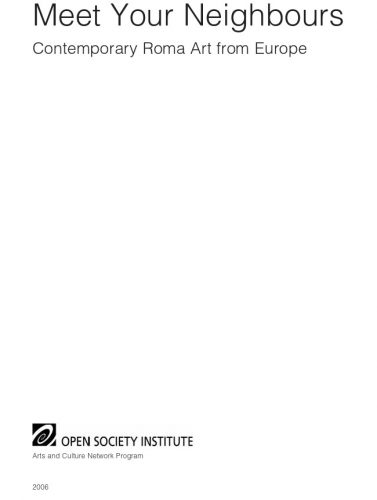
Meet Your Neighbours: Contemporary Roma Art from Europe
Junghaus, Tímea (2006) “Meet Your Neighbours: Contemporary Roma Art from Europe”, Budapest: Open Society Foundations, pp. 111.
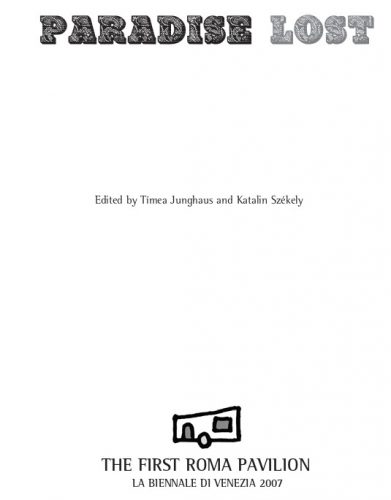
Paradise Lost: The First Roma Pavilion
Junghaus, Tímea & Szekely, Katalin (2007) “Paradise Lost: The First Roma Pavilion”, La Beinnale Di Venezia 2007, Munich: Prestel Verlag. Open Society Foundations, pp.85.
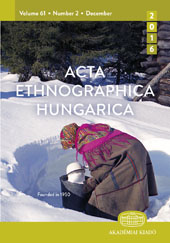
Roma Art: Theory and Practice
Junghaus, Tímea (2014) “Roma Art: Theory and Practice”, Acta Ethnographica Hungrica, Vol.59, No.1, pp. 25-42.
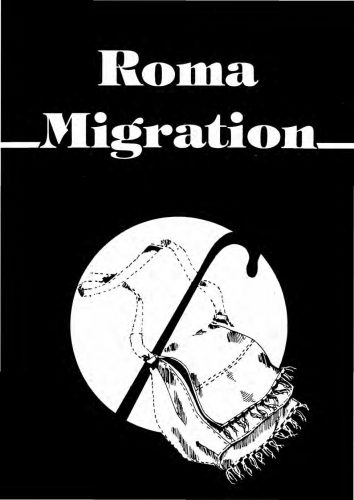
Gypsy Musicians
Kallai, Erno (2002) “Gypsy Musicians”, In: Kováts, András (eds.), Roma Migration. Budapest: MTA Kisebbségkutató Intézet–Nemzetközi Migrációs és Menekültügyi Kutatóközpont, pp. 75– 96.
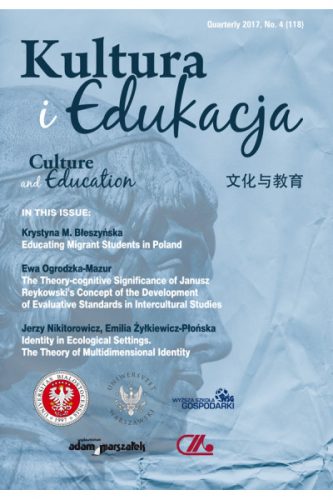
The Cultural Comparative Study of the Roma Community and
Bohemians
Matkovska, Justyna (2017) “The Cultural Comparative Study of the Roma Community and Bohemians”, Prolegomena: Kultura i Edukacja, Vol.4, No.118, pp.138–150.

Representations of Romani Women in Contemporary Polish and Romani Literature
Justyna Matkowska (2021) “Representations of Romani Women in Contemporary Polish and Romani Literature”, Critical Romani Studies, Vol.4, No.1, pp. 56-73.

Place of Seeing Thoughts, Suggestions, and Reflections on Galerie Kai Dikhas
Raatzsch, J. André (2018) “Place of Seeing Thoughts, Suggestions and Reflections on Galerie Kai Dikhas”, In: IG Kultur Österreich [ed.], Romanistan Is Everywhere: Tracing Treacherous Terrain, Vienna: IG Kultur Österreich, pp. 63-68.

We are RomaPop: Globalised Pop Culture and the Romani Rights Struggle for Self-definition, in the Age of Superheroes
Rodríguez, Vicente (2019) “We are RomaPop: Globalised Pop Culture and the Romani Rights Struggle for Self-definition, in the Age of Superheroes”, In: Cortés Gómez, I., End, M. [eds.], Dimensions of Antigypsyism in Europe, ENAR Anti-Racism in Focus Series 3, Brussels, Heidelberg: European Network Against Racism (ENAR), Central Council of German Sinti and Roma, pp. 322-332.
VIII/1. NON-ROMANI CRITICAL SCHOLARSHIP ON ROMANI ART HISTORY AND CULTURAL NARRATIVES
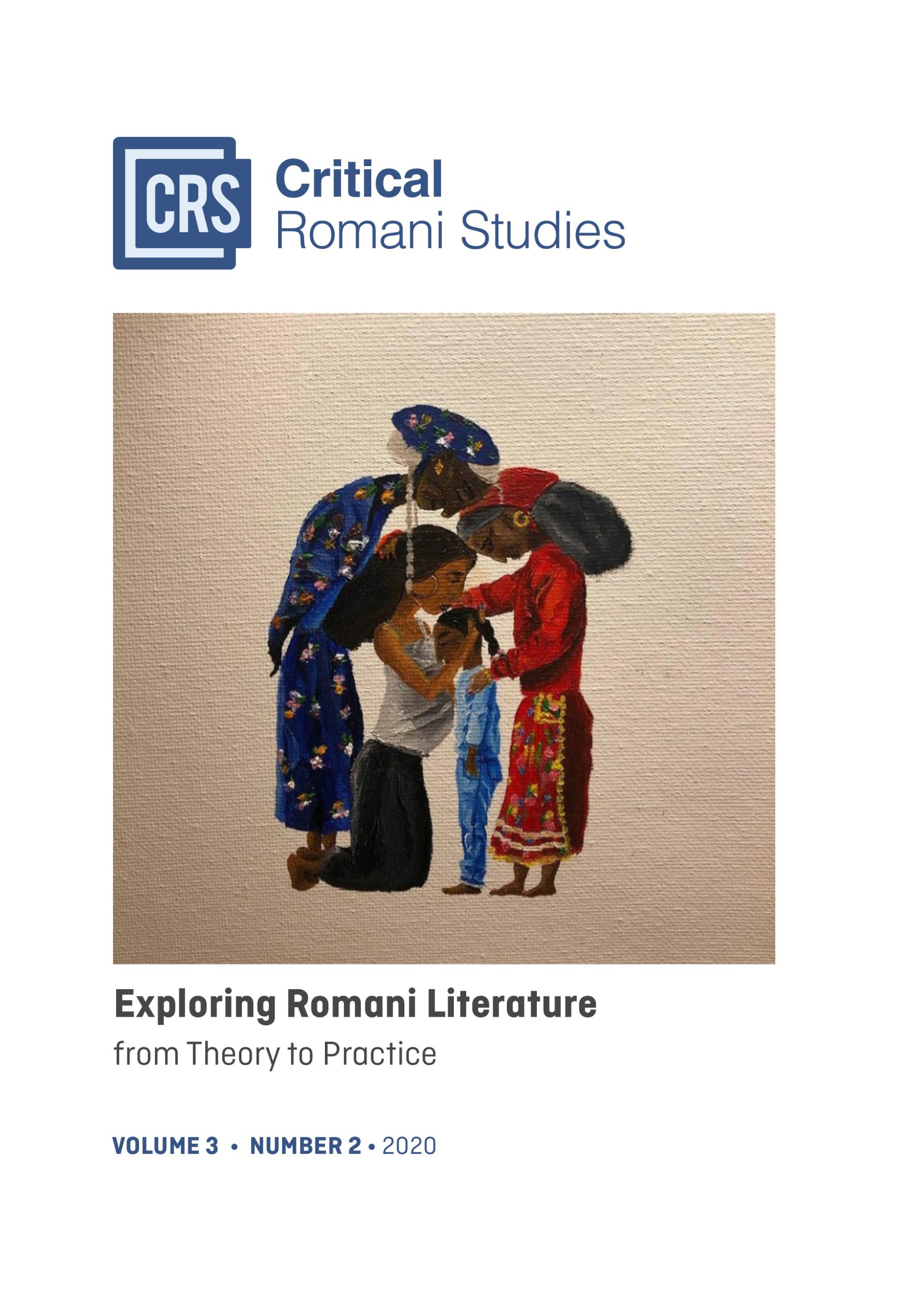
Black Bodies, White Bodies – Gypsy’ Images in Central Europe at the Turn of the Twentieth Century (1880–1920)
Kovacs, Eva (2020) „Black Bodies, White Bodies – ‘Gypsy’ Images in Central Europe at the Turn of the Twentieth Century (1880–1920)”, Critical Romani Studies, Vol.3, No.2, pp. 72-94.
IX. LANGUAGE
Who is Afraid of the Rromani Language?
Courthiade, Marcel (2005) “Who is Afraid of the Rromani Language?”, In: Thelen, P. [eds.], Roma in Europe: From Social Exclusion to Active Participation, Skopje: Freidrich Ebert Stiftung, pp. 93-114.

A Standard Rromany Language – A Pre-condition and Basis for a National and Cultural Identity for the Rroma
Djuric, Rajko (2005) “A Standard Rromany Language – A Precondition and Basis for a National and Cultural Identity for the Rroma”, In: Thelen, P. [eds.], Roma in Europe: From Social Exclusion to Active Participation, Skopje: Freidrich Ebert Stiftung, pp. 79-91.
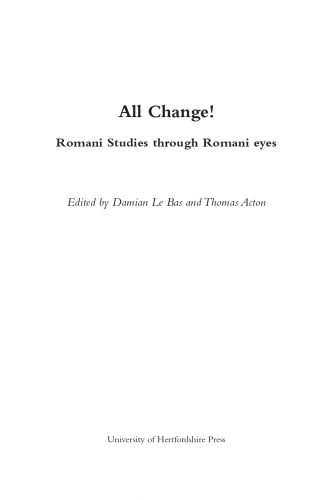
Mind the Doors! The Contribution of Linguistics
Hancock, Ian (2009) “Mind the Doors! The Contribution of Linguistics”, In: Acton, T. A. & Le Bas, D. [eds.], All Change! Romani Studies Through Romani Eyes, Papers given at a seminar at the University of Greenwich, June 3rd 2008, Hatfield: Hertfordshire University Press, pp. 5-25.
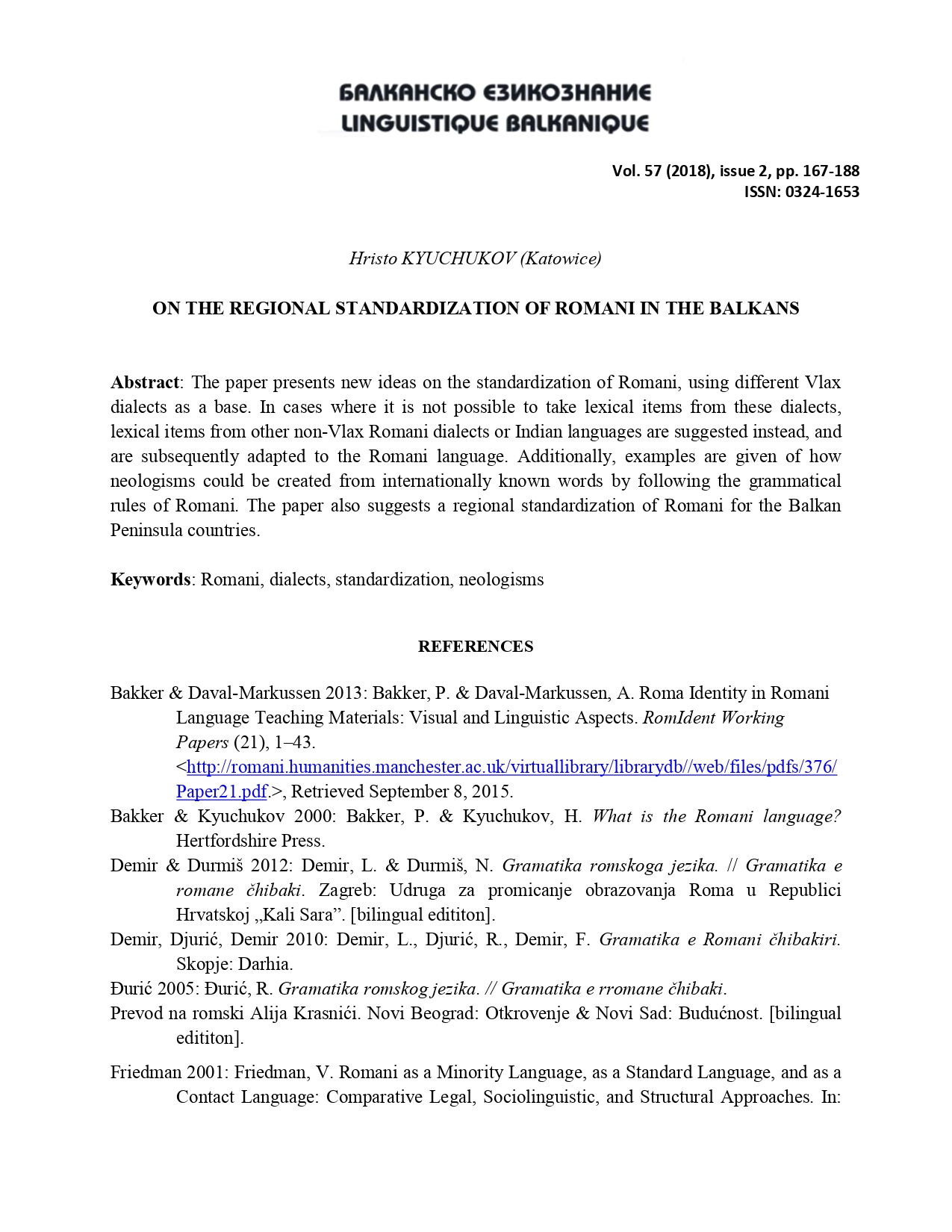
On the Regional Standardization of Romani in the Balkans
Kyuchukov, Hristo (2018) “On the Regional Standardization of Romani in the Balkans”, Académie Bulgare Des Sciences Linguistique Balkanique, Vol. 57, No.2, pp. 167-188.
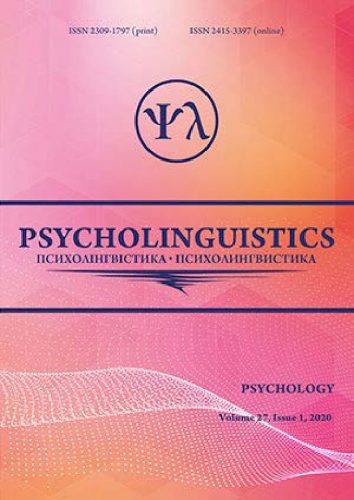
Are the Mental State Verbs Important for Roma Children’s Understanding of False Belief Task
Kyuchukov, Hristo (2020) “Are the Mental State Verbs Important for Roma Children’s Understanding of False Belief Task”, Psycholinguistics, Pereiaslav Khmelnytskyi Hryhorii Skovoroda State Pedagogical University, Vol. 27, No.1, pp. 181–194.

Language use of Russian Roma Children in their Home Environments during the COVID-19 Pandemic
Kyuchukov, Hristo (2021) ”Language use of Russian Roma Children in their Home Environments during the COVID-19 Pandemic, Intercultural Education”, Routledge, Taylor and Francis Group, pp. 1-6.
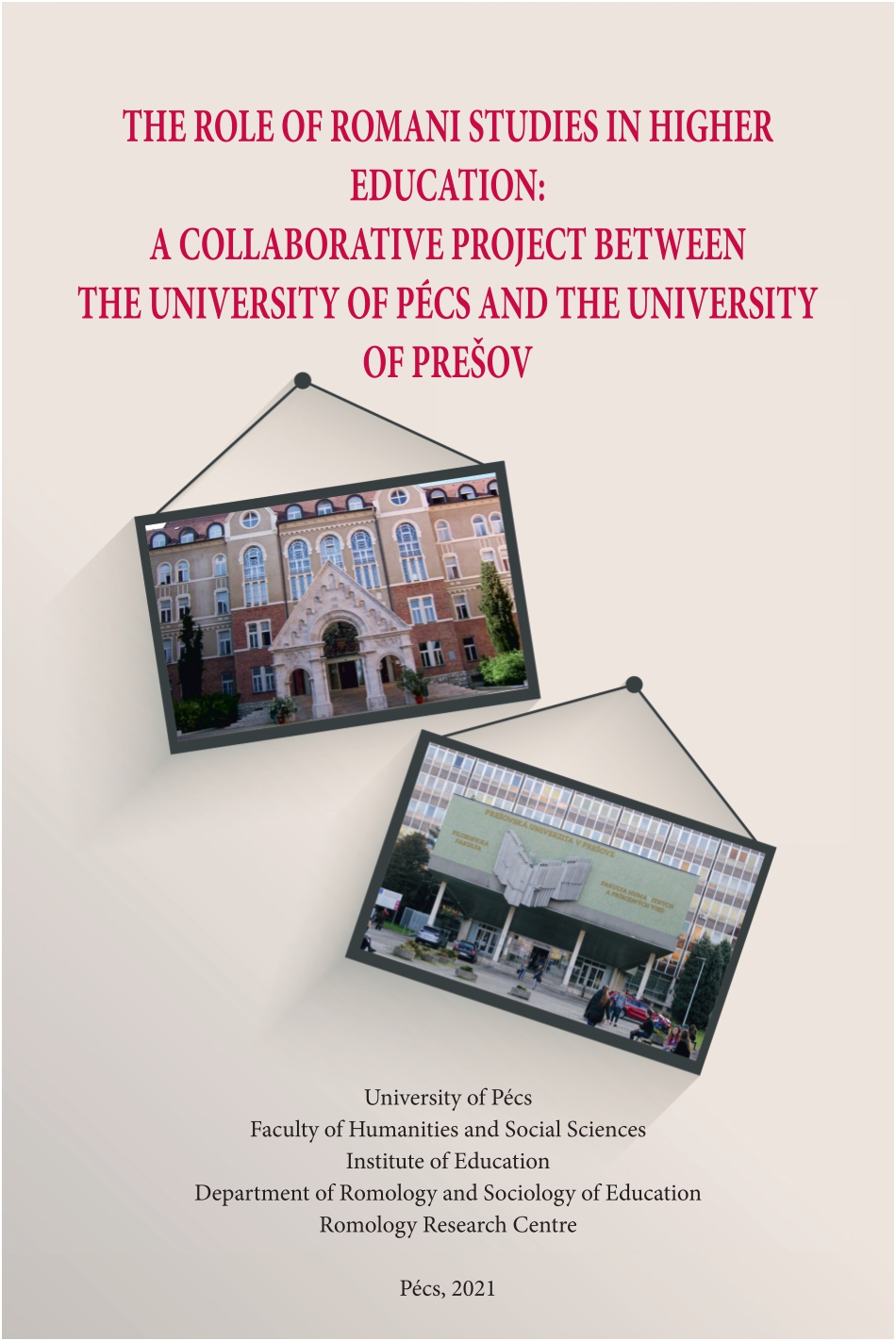
The Boyash and their Language in Hungary
Orsos, Anna & Gergye, Eszter (2021) “The Boyash and their Language in Hungary”, In: The Role of Romani Studies in Higher Education: A Collaborative Project Between the University of Pecs and The University Of Presov, University of Pécs Faculty of Humanities and Social Sciences Institute of Education Department of Romology and Sociology of Education Romology Research Centre, pp. 94-133.
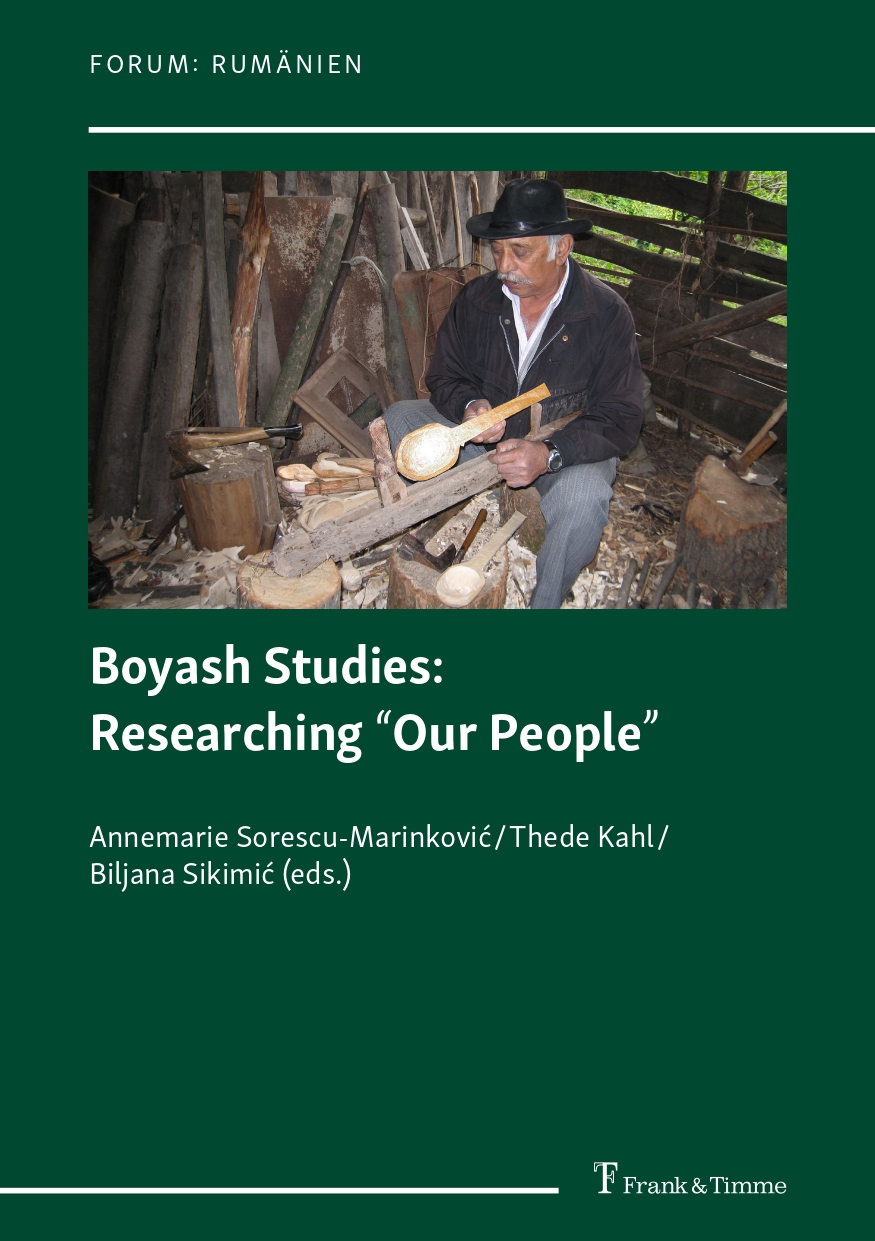
The Boyash in Hungary: Linguistic Situation, Language Education and Teacher Training
Orsos, Anna (2021) “The Boyash in Hungary: Linguistic Situation, Language Education and Teacher Training”, In: Boyash Studies: Researching “Our People” (eds.) Sorescu-Marinković, Annemarie – Kahl, Thede – Sikimić, Biljana, Frank&Tmme, pp. 215-229.
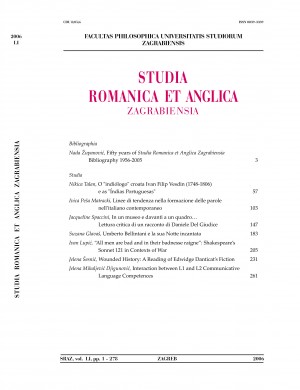
The Linguistic Situation of the Boyash Language in Hungary
Orsos,Anna & Gergye, Eszter (2020) The linguistic situation of the Boyash language in Hungary, UDC, Studia Romanica Et Anglica, Zagrabiensia, Professional paper, pp. 33-40.
IX/1. NON-ROMANI CRITICAL SCHOLARSHIP ON LANGUAGE

Transnational Policy and ‘Authenticity’ Discourses on Romani Language and Identity
Matras, Yaron (2015) ”Transnational policy and ‘authenticity’ discourses on Romani language and identity”, Language in Society 44, 295–316.
X. ROMANI CHILDREN AND EDUCATION

The Multiple Stories in Finnish Roma Schooling
Stenroos, Marko & Helakorpi, Jenni (2021) “The Multiple Stories in Finnish Roma Schooling”, In: Manuela Mendes, M., Magano, O., & Toma, S. [eds.], Social and Economic Vulnerability of Roma People Key Factors for the Success and Continuity of Schooling Levels, Berlin & Heidelberg: Springer Verlag, pp.99-116.

Romani Cultural After – School Activities as an Instrument for the Better and Easier Inclusion of Romani Children and Youth in the Formal Educational Process
Demir, Ljatif (2012) “Romani Cultural After – School Activities as an Instrument for the Better and Easier Inclusion of Romani Children and Youth in the Formal Educational Process”, In: Bester, Romana & Klopcic, Vera [eds.], Medvesek, Mojca, CIP, Ljubljana: Kataložni zapis o publikaciji Narodna in univerzitetna knjižnica, pp.118-129.
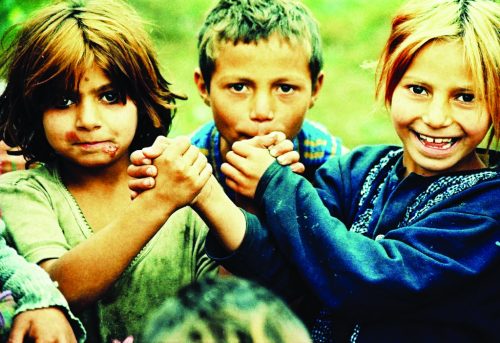
Discrimination against Roma in the Swedish social system
Lindgren, Lars, & Pikkarainen, Heidi (2007) “Discrimination against Roma in the Swedish social system”, ‘Child Protection’ Issue, Roma Rights: Quarterly Journal of the European Roma Rights Centre, Budapest, No.4, pp.23–25.
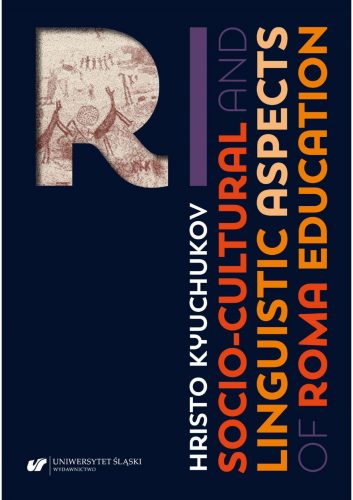
Socio-Cultural and Linguistic Aspects of Roma Education
Kyuchukov, Hristo (2020) Socio-Cultural and Linguistic Aspects of Roma Education, Katowice: Wydawnictwo Uniwersytetu Śląskiego, pp.157.
X/1. NON-ROMANI CRITICAL SCHOLARSHIP ON ROMANI CHILDREN AND EDUCATION
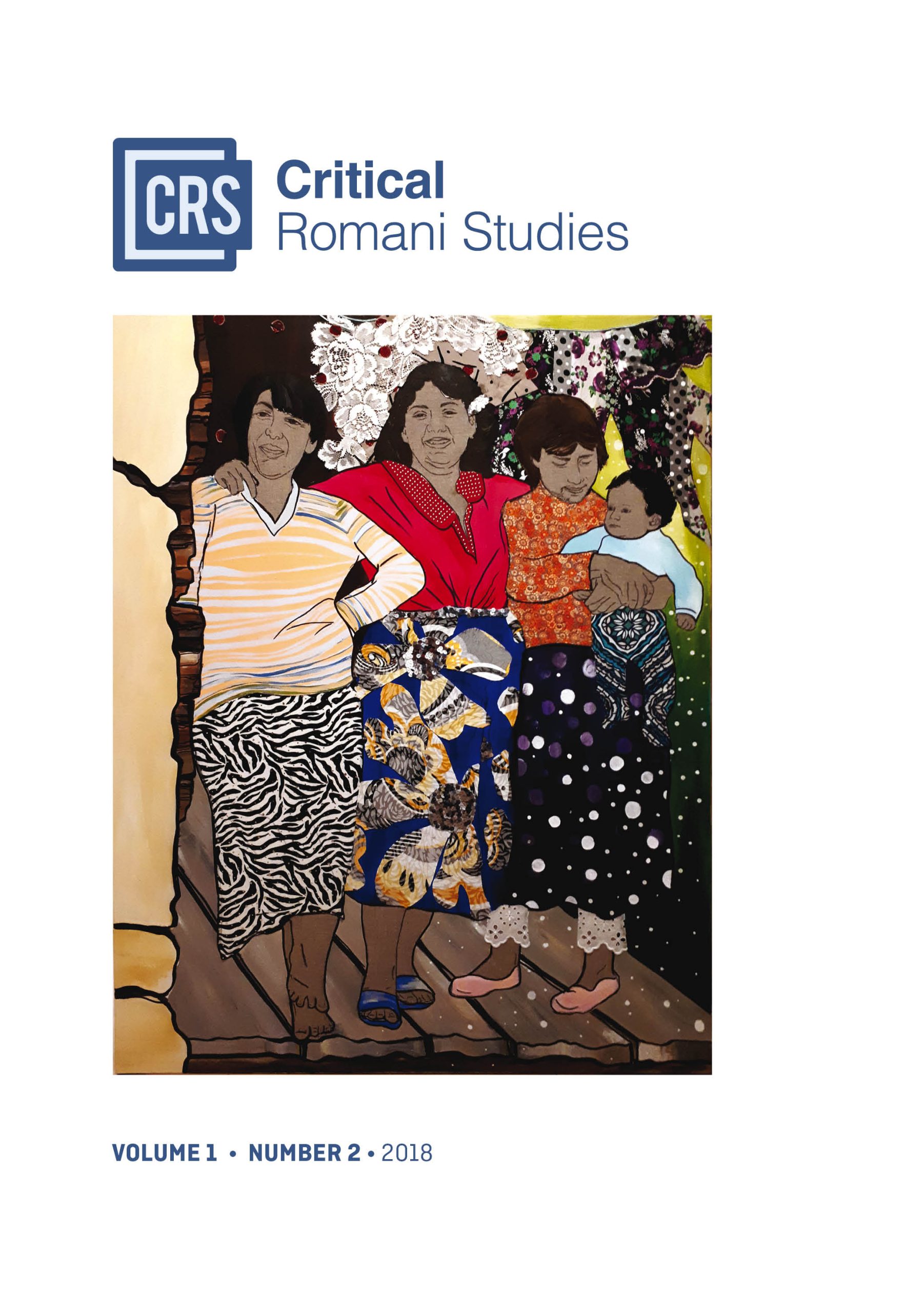
Nomadism in Research on Roma Education
Lauritzen, Solvor (2018) “Nomadism in Research on Roma Education”, Critical Romani Studies, Vol. 1, No.2, pp. 58-75.
